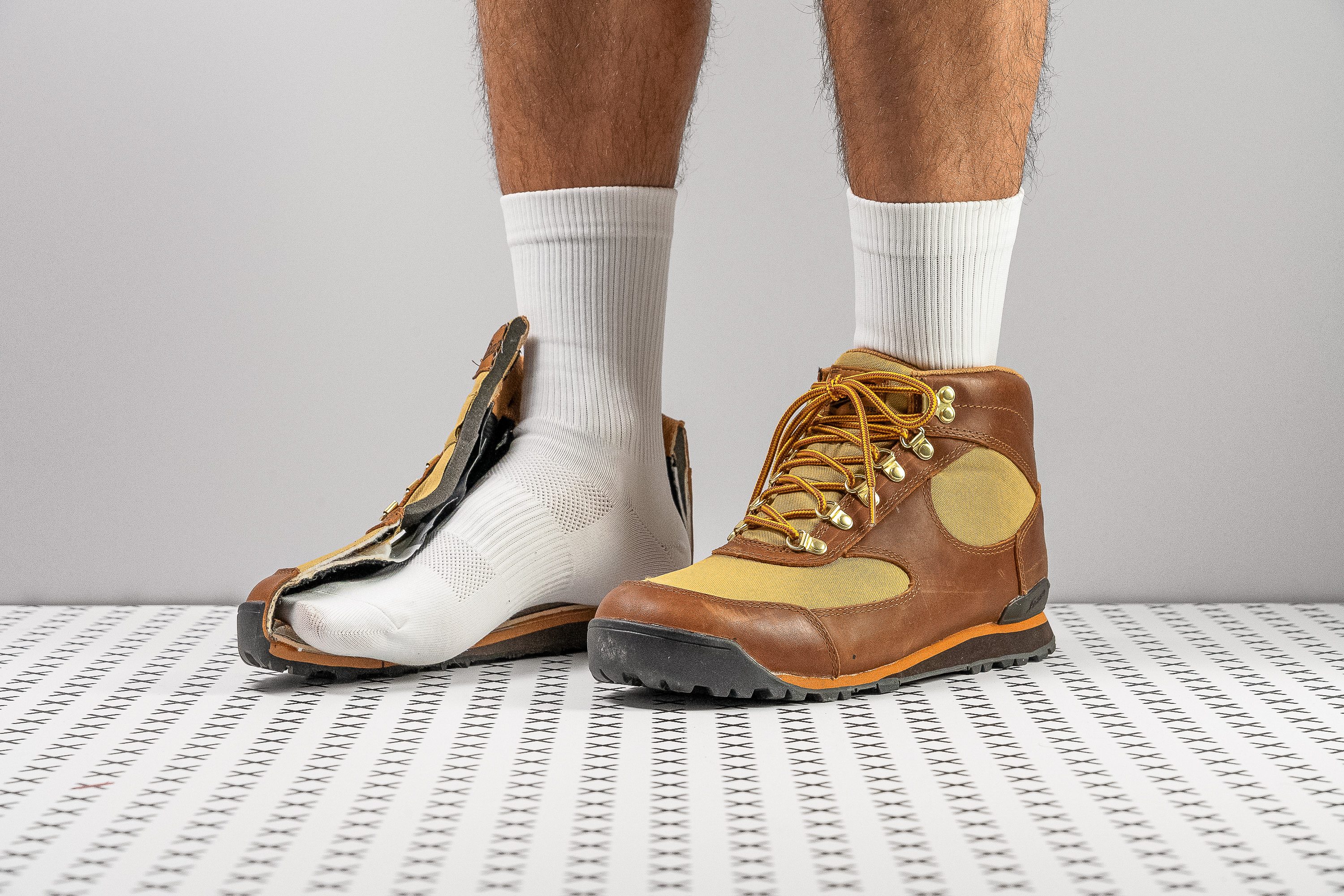Our verdict
- Top pick in best Danner hiking boots
Pros
- Versatile for both city and trail
- High-quality materials
- Excellent waterproofing
- Indestructible outsole
- Lighter than average
- Minimal break-in period
- Firm and grounded platform
- Stylish retro aesthetic
Cons
- Lacks cushioning for longer hikes
- Not for severe overpronation
Audience verdict
- Top 20% in hiking boots
- Top 18% in waterproof hiking boots
Comparison
The most similar hiking boots compared
+ + Add a shoe | |||||
|---|---|---|---|---|---|
| Audience score | 89 Great! | 83 Good! | 85 Great! | 90 Great! | |
| Price | £200 | £150 | £170 | £200 | |
| Trail terrain | LightModerate | Moderate | Moderate | LightModerate | |
| Shock absorption | Low | Moderate | - | Moderate | |
| Energy return | Low | Moderate | - | Moderate | |
| Weight lab Weight brand | 17 oz / 482g 17 oz / 482g | 17.5 oz / 495g 13.6 oz / 385g | 18.2 oz / 515g 17.4 oz / 493g | 18.7 oz / 529g 19.5 oz / 553g | |
| Lightweight | ✓ | ✓ | ✗ | ✗ | |
| Breathability | Warm | Warm | Warm | Moderate | |
| Use | Day HikingLight HikingUrban hiking | Day HikingLight HikingSnow | BackpackingDay HikingLight Hiking | Day HikingUrban hikingSnow | |
| Orthotic friendly | ✓ | ✓ | ✓ | ✓ | |
| Drop lab | 13.5 mm | 13.5 mm | 12.9 mm | 13.8 mm | |
| Size | True to size | Half size small | True to size | True to size | |
| Midsole softness | Firm | Firm | Firm | Balanced | |
| Difference in midsole softness in cold | Small | Small | Small | Normal | |
| Heel counter stiffness | Stiff | Moderate | Flexible | Moderate | |
| Stiffness | Moderate | Moderate | Moderate | Moderate | |
| Outsole hardness | Very hard | Average | Soft | Average | |
| Waterproofing | Waterproof | Waterproof | Waterproof | Waterproof | |
| Material | Suede | MeshSuede | Leather | Suede | |
| Season | Winter | Winter | Winter | - | |
| Toebox durability | Decent | Bad | Good | Good | |
| Heel padding durability | Decent | Good | Decent | Bad | |
| Outsole durability | Decent | Bad | Bad | Decent | |
| Width / fit | Medium | Medium | Wide | Medium | |
| Toebox width | Medium | Medium | Wide | Medium | |
| Lug depth | 3.7 mm | 5.0 mm | 4.2 mm | 4.0 mm | |
| Heel stack lab | 32.7 mm | 36.1 mm | 31.1 mm | 36.8 mm | |
| Forefoot | 19.2 mm | 22.6 mm | 18.2 mm | 23.0 mm | |
| Widths available | Normal | NormalWide | NormalWide | NormalWideX-Wide | |
| Technology | Ortholite | Gore-Tex | Ortholite | OrtholiteVibram | |
| Cut | Mid cut | Mid cut | Mid cut | Mid cut | |
| Removable insole | ✓ | ✓ | ✓ | ✓ | |
| Ranking | #8 Top 20% | #30 Bottom 26% | #24 Bottom 41% | #5 Top 13% | |
| Popularity | #29 Bottom 29% | #11 Top 27% | #30 Bottom 26% | #7 Top 18% |
Who should buy
We believe that the Danner Jag can become your ultimate outdoor companion if:
- you are drawn to the retro aesthetics of this hiking boot
- you need a semi-casual boot to transition from the trails to the streets comfortably
- you want a leather/suede boot that doesn't take long to break in
- you need reliable waterproofing for puddles, creeks, and heavy rains
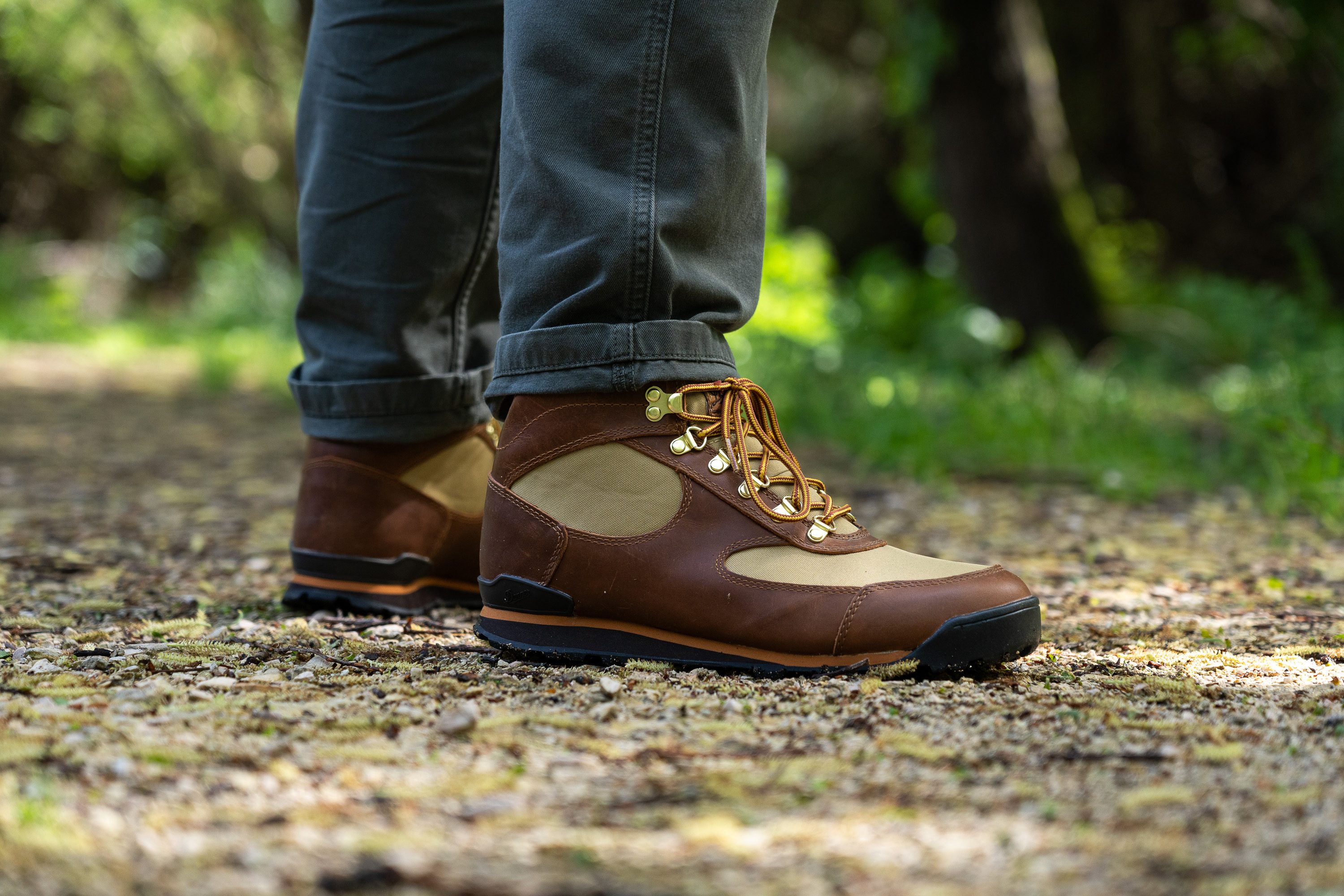
Who should NOT buy
The Jag has many virtues but we don't think they are enough to make it a perfect option for longer adventures on technical terrain.
For challenging multi-day hikes, you will need a better cushioned and more rugged boot with deeper lugs. Our top recommendations in this category are the Salomon X Ultra 4 Mid GTX and the Hoka Anacapa Mid GTX.
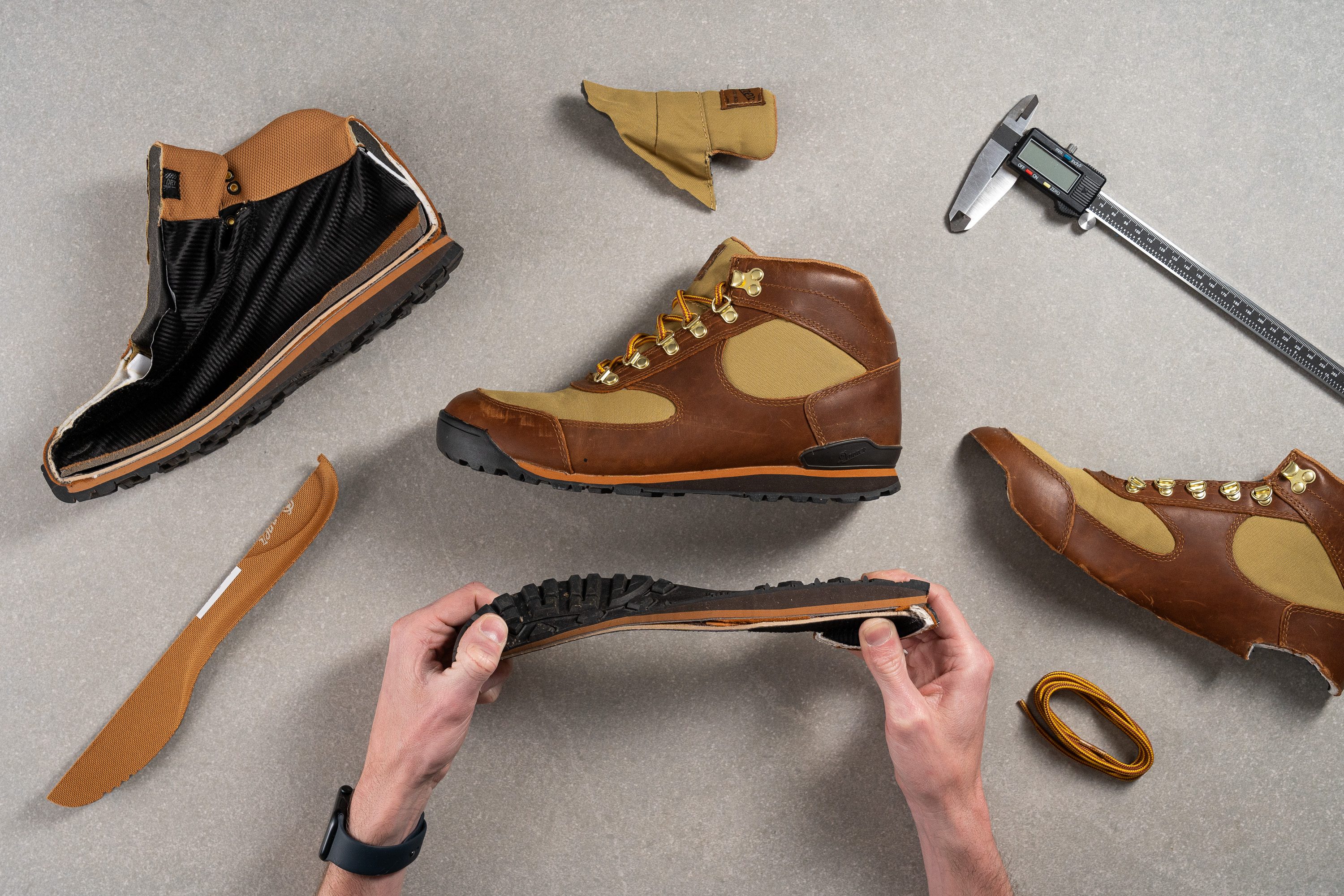
Cushioning
Shock absorption
The low-cushion setup of the Danner Jag makes steps feel direct and even harsh if you attempt a longer hike or walk in this boot. Its shock absorption is minimal at only 66 SA and it feels notably less cushioned and comfortable than the average hiking boot.
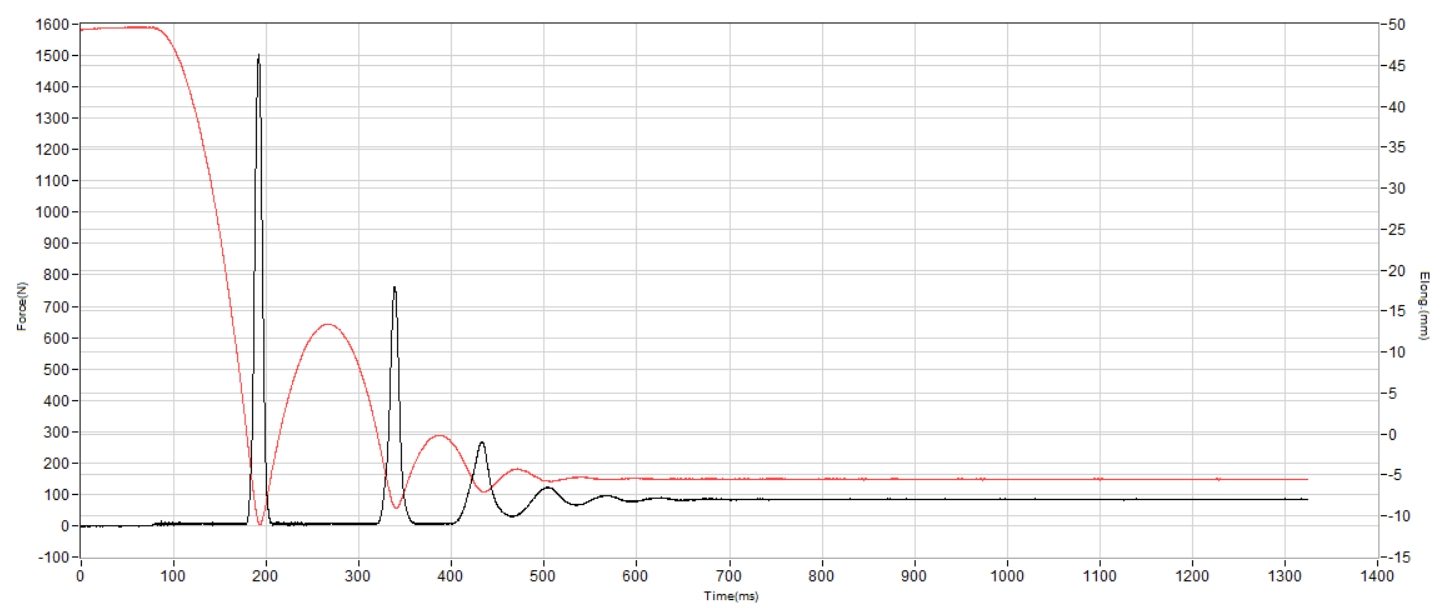
| Jag | 66 SA |
| Average | 93 SA |
Energy return
The ride of this Danner boot feels somewhat barebones as its energy return proved to be minimal as well (36.9%). There is no rebound to make its ride more dynamic, and the ground feel is clearly dominant here.
| Jag | 36.9% |
| Average | 50.5% |
Heel stack
The Danner Jag has a moderately thick platform. Our calliper shows that its heel stack comes in at 32.7 mm which is a few millimetres lower than average.
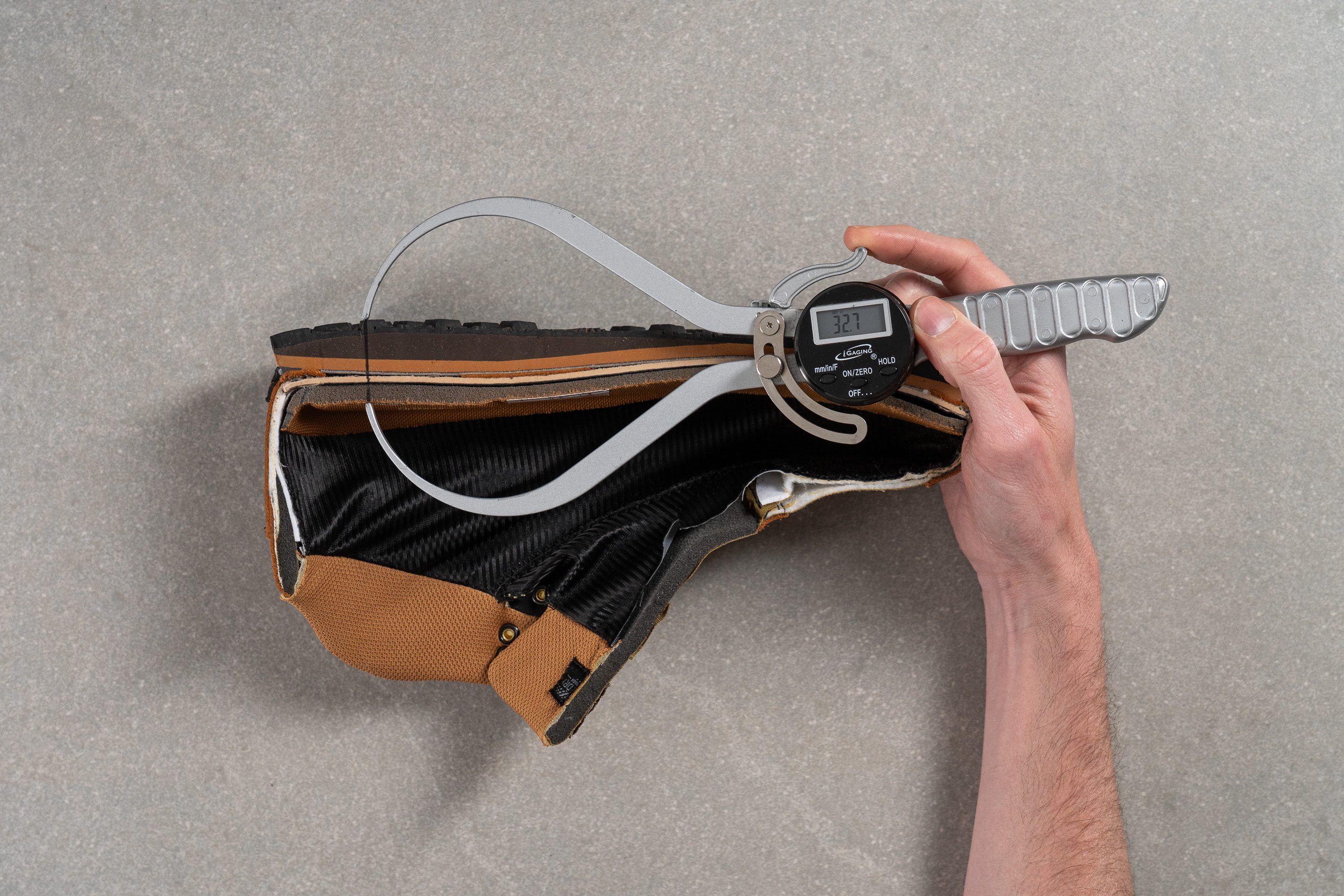
Even though our feet felt close to the ground during the wear test, there was enough underfoot protection too. We didn't notice stepping on sharp rocks and roots.
| Jag | 32.7 mm |
| Average | 36.3 mm |
Forefoot stack
The forefoot stack also proved to be lower than average in the Danner Jag. According to our calliper, it is 19.2 mm thick.
This resulted in a little better ground feedback but didn't compromise protection under the balls of our feet.
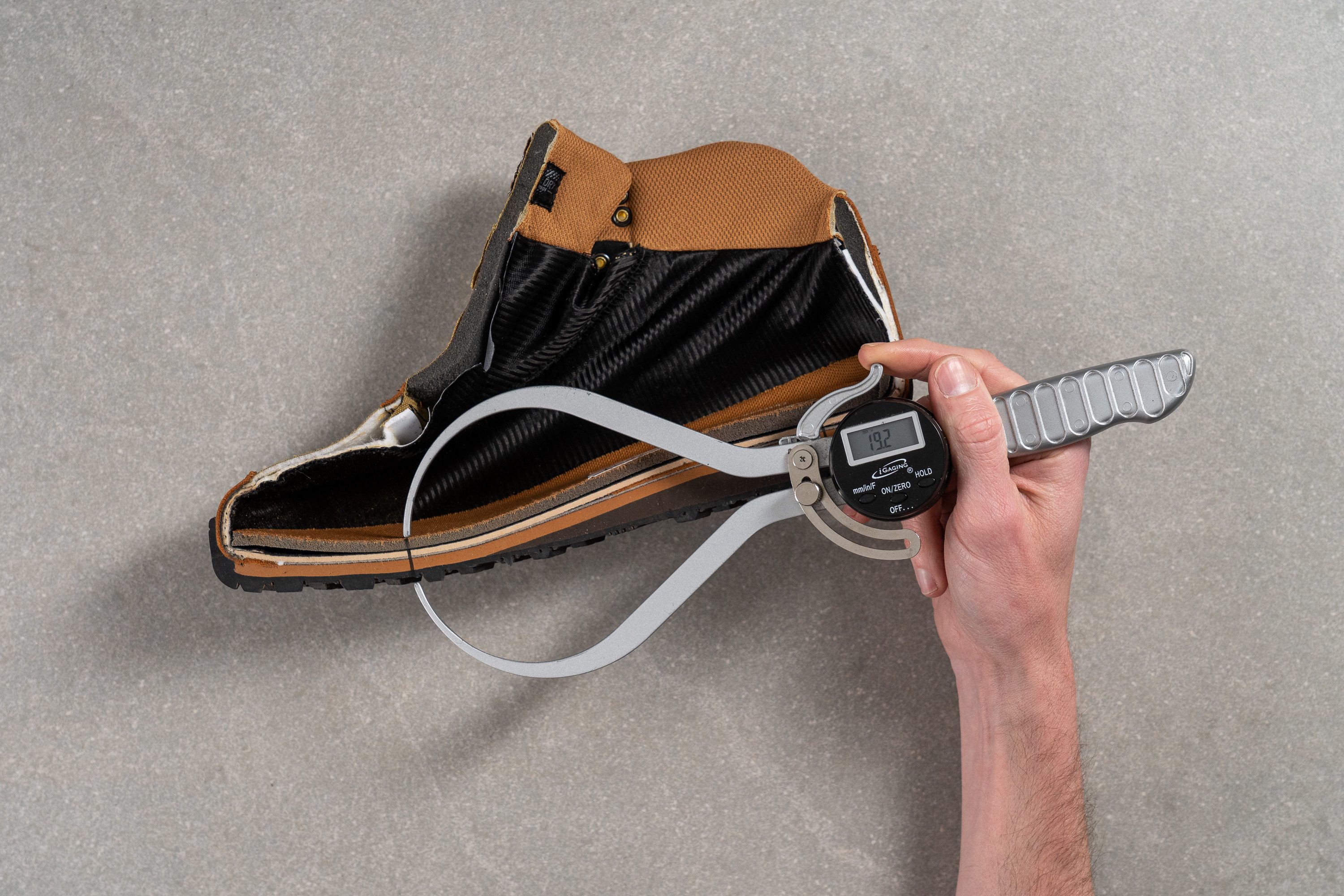
| Jag | 19.2 mm |
| Average | 23.0 mm |
Drop
The difference in height between the heel and forefoot wasn't very drastic in the Danner Jag. At 13.5 mm, it is just the same as the average.
This setup elevates the heel slightly above the toes taking the pressure off the Achilles. It creates a more supportive in-shoe feel.
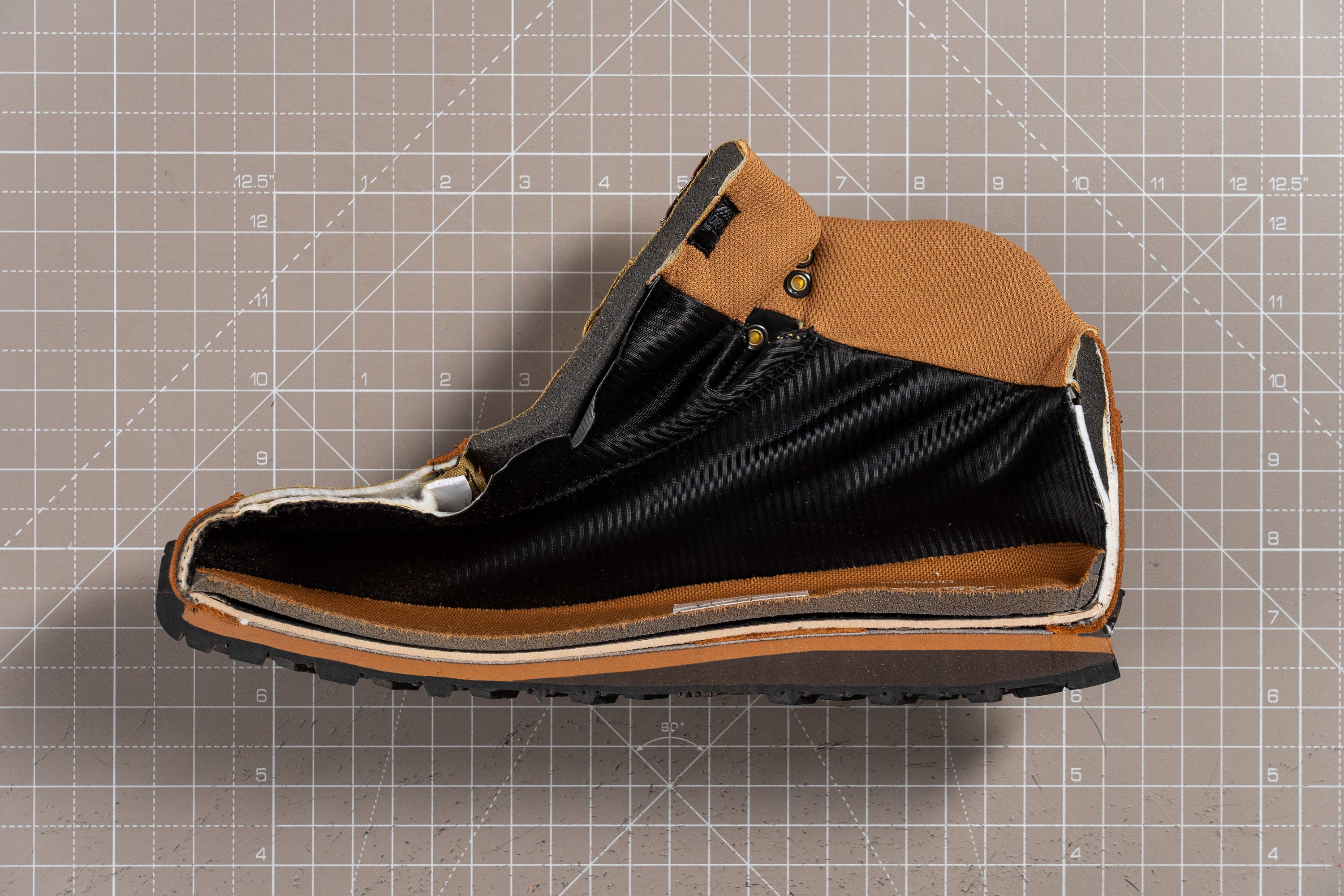
| Jag | 13.5 mm |
| Average | 13.3 mm |
Midsole softness
If you are used to cushy shoes with a generous amount of plush foam, the Danner Jag is going to feel vastly different.
Actually, It is one of the firmest hiking boots we've ever tested!
Pressing our durometer against the boot's primary foam, we got 51.6 HA. That's a whopping 50% firmer than hiking boots on average!
It makes the boot more stable for sure but it does detract from comfort in the long haul. In case you need that cush, Hoka boots are the complete opposite of the Danner Jag.
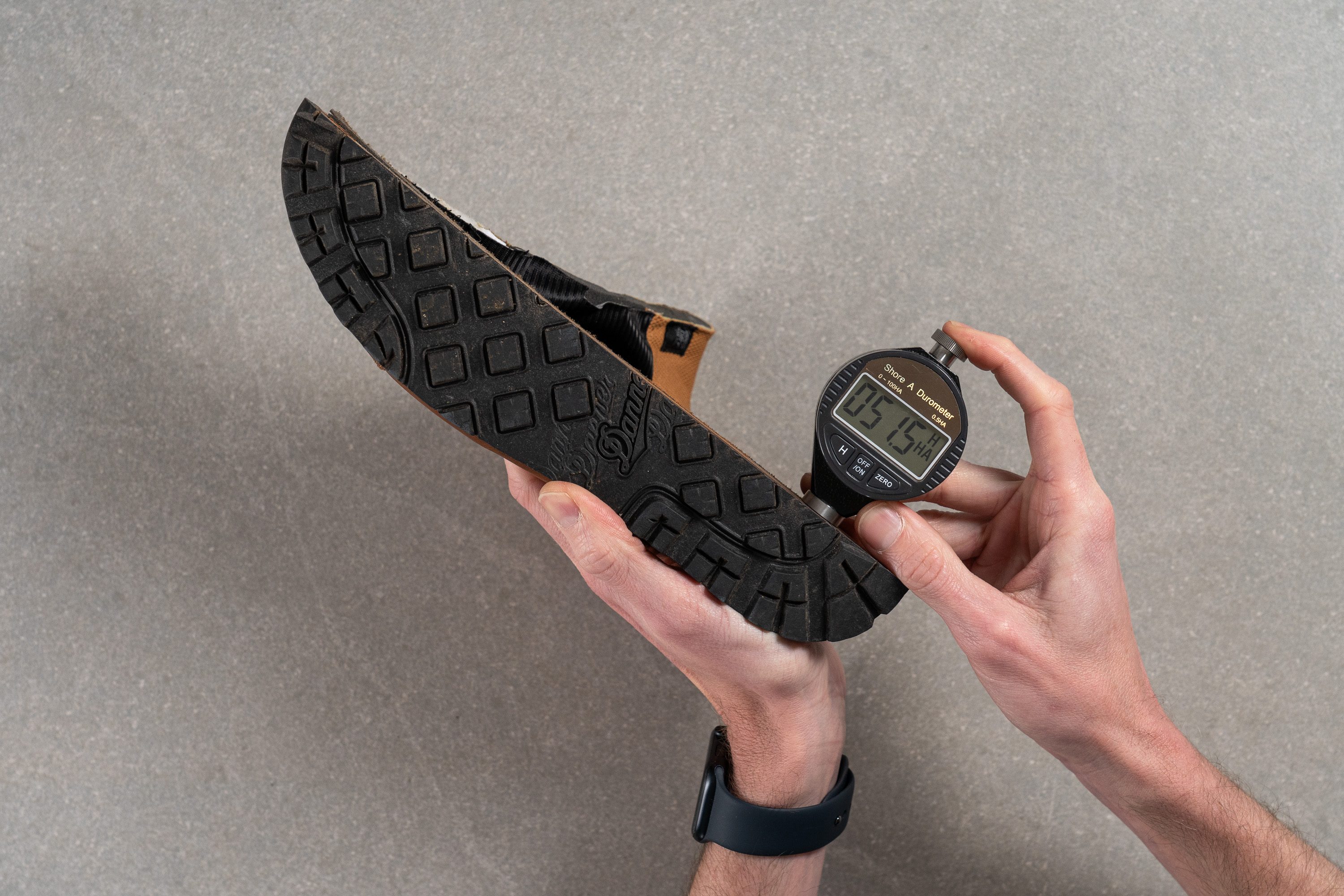
| Jag | 51.6 HA |
| Average | 28.4 HA |
Secondary foam
Having cut through the Jag, we found that it uses two types of foam.
But measuring its secondary foam under the heel, we found that it is just as firm as the primary cushioning. The durometer showed 52.5 HA which is nearly the same as the other foam.
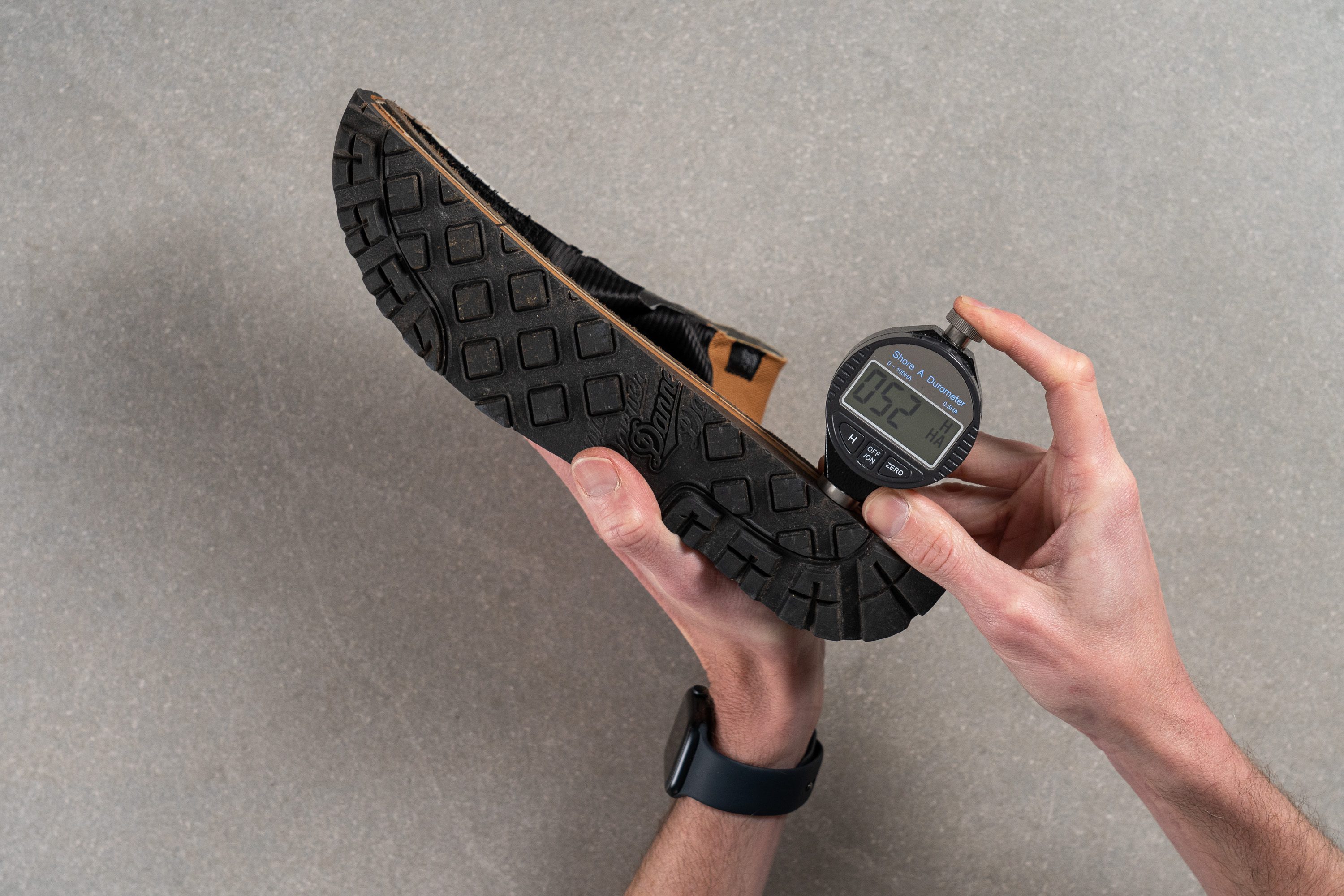
| Jag | 52.5 HA |
| Average | 42.7 HA |
Size and fit
Size
Danner Jag fits true to size (35 votes).
Internal length
Danner recommends going down a half size in the Jag boot if you fall in between sizes.
Indeed, we found that the Danner Jag runs slightly long. Measuring the boot in our regular US size 9, we got 277.1 mm which is longer than what it should be in the Danner's shoe size chart (270 mm).
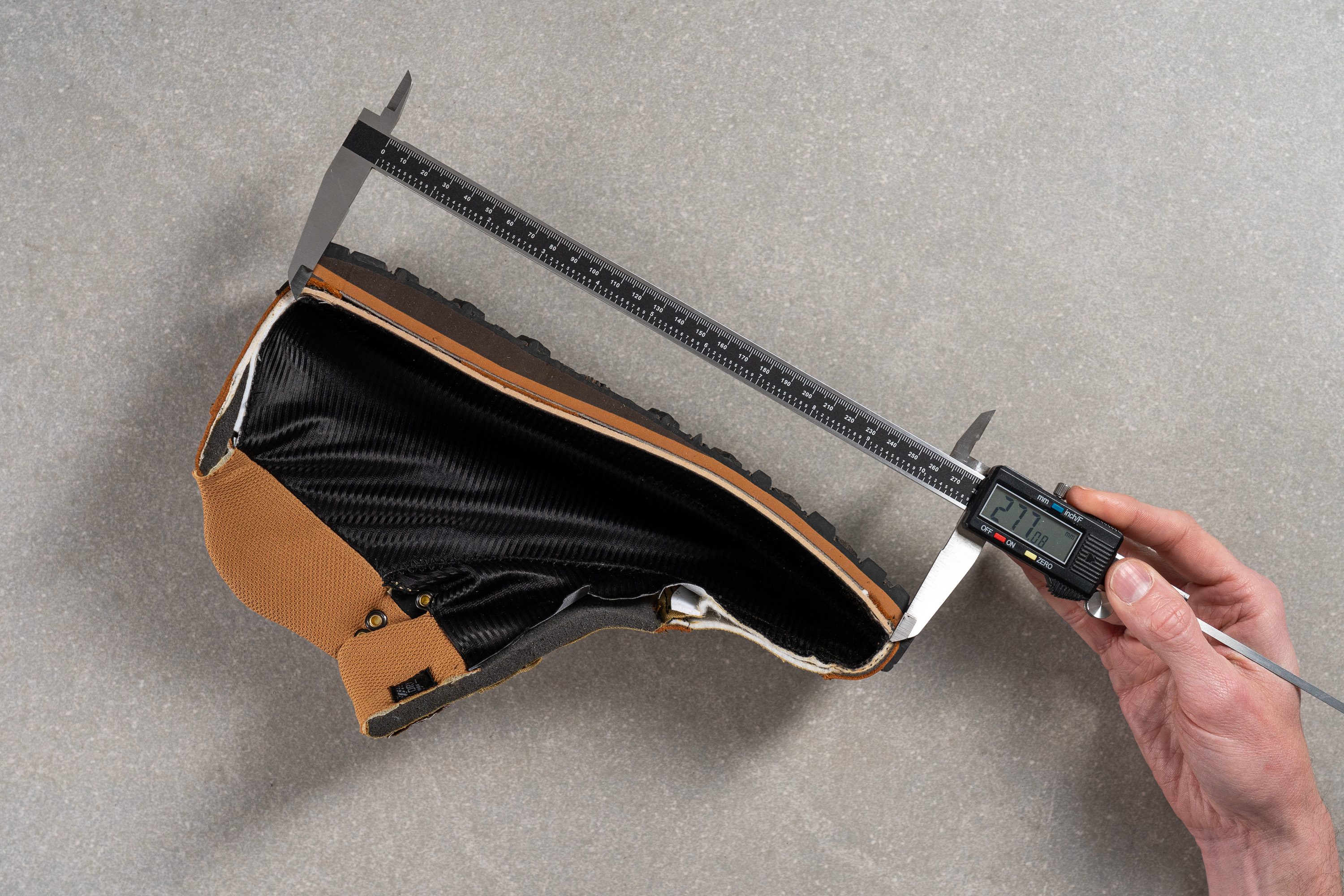
| Jag | 277.1 mm |
| Average | 271.4 mm |
Width / Fit
UpdatedWidth-wise, the Danner Jag offers a rather predictable medium-width fit which was also reflected in our lab measurements.
Having created a gel mould of the boot's toebox, we used a digital calliper to measure its internal dimensions as precisely as possible. The tool returned a regular width of 93.0 mm, proving that the Jag is on par with the average.
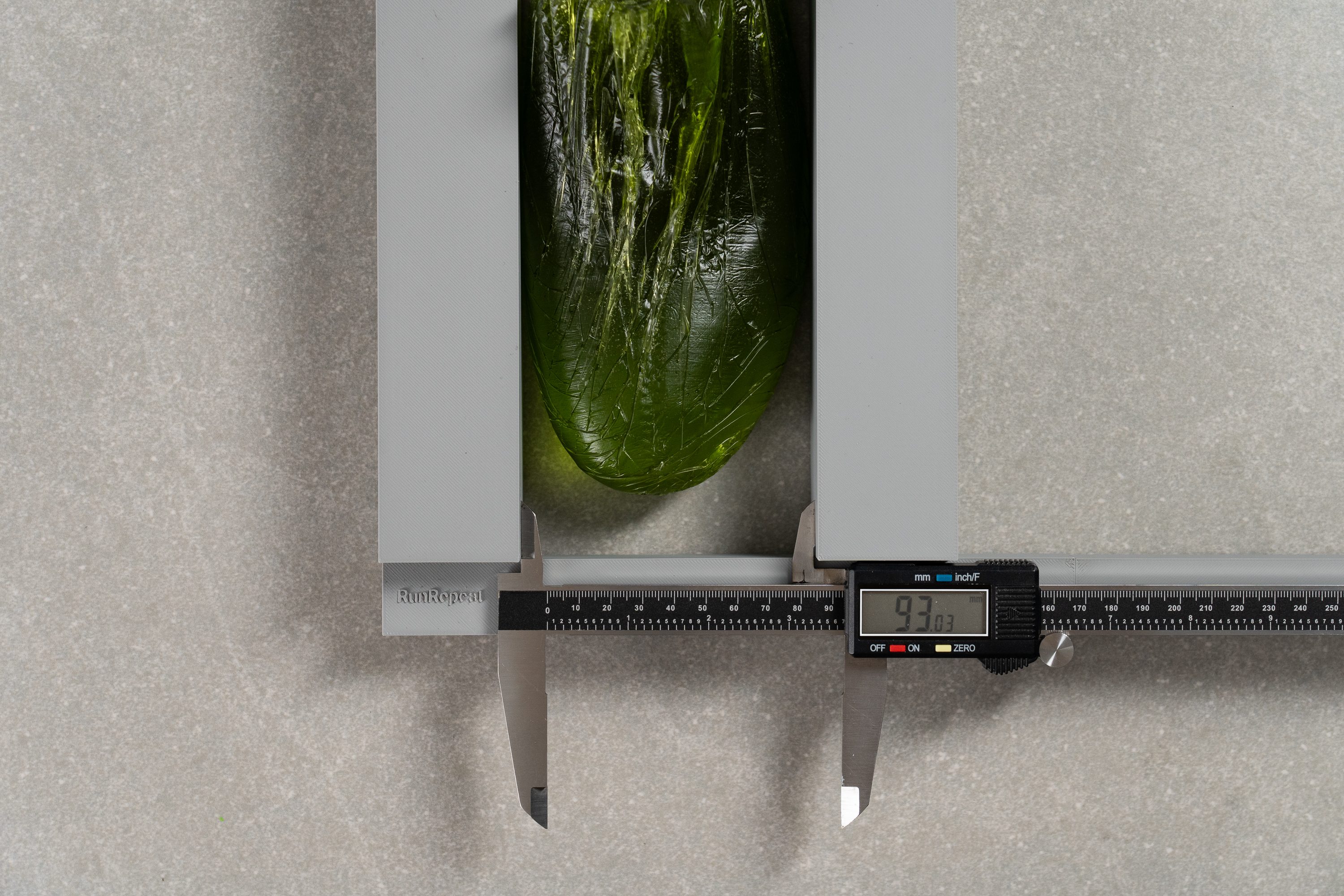
| Jag | 93.0 mm |
| Average | 93.8 mm |
Toebox width
UpdatedWe were also pleased to discover that the boot's toebox doesn't taper much toward the toes. It leaves a little room for the toes to splay and feel comfortable all day.
Our calliper showed a welcome 71.9 mm of width in the big toe area.
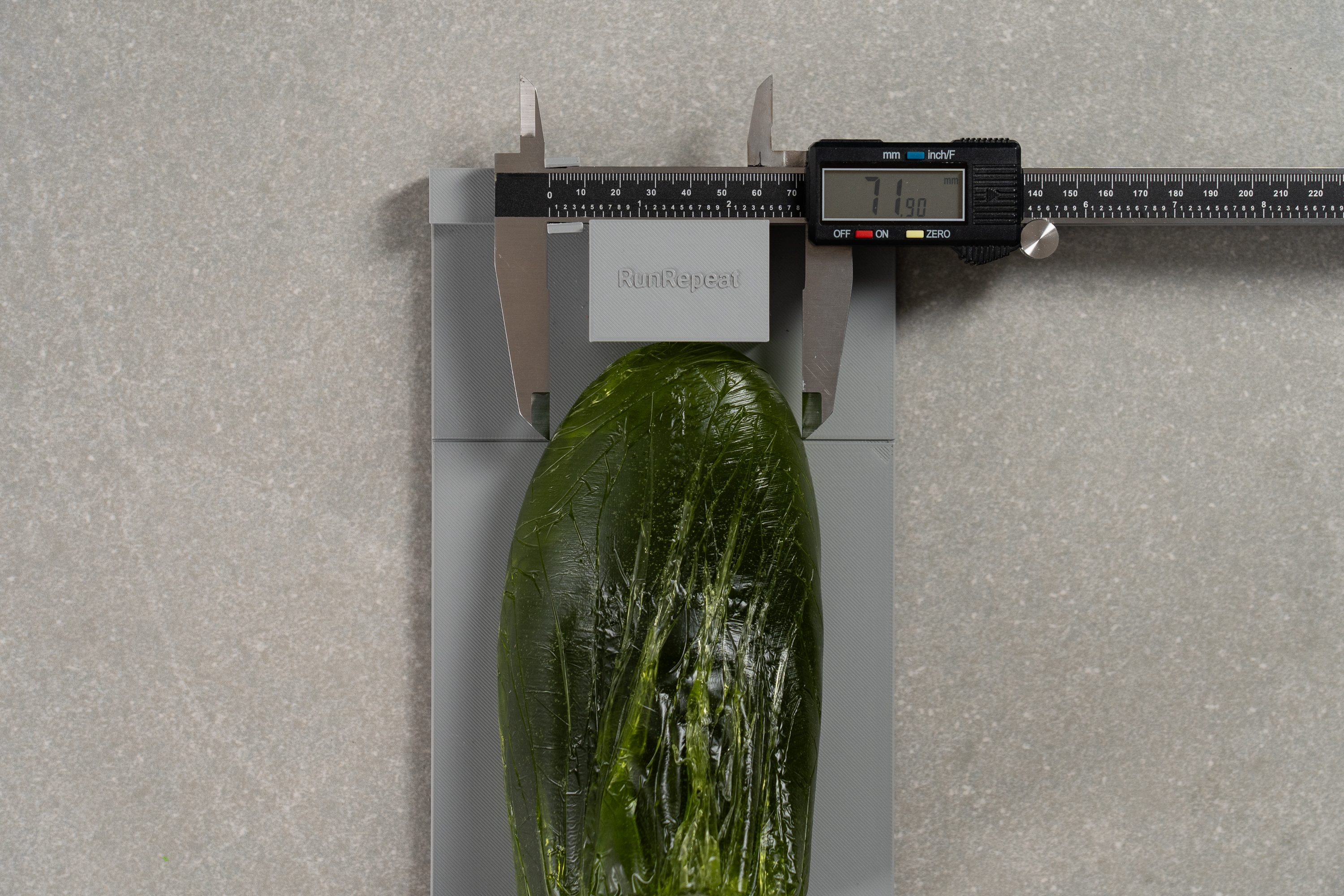
| Jag | 71.9 mm |
| Average | 71.2 mm |
Toebox height
No restriction came from the top of the boot's toebox either as it showed a standard height of 26.9 mm.
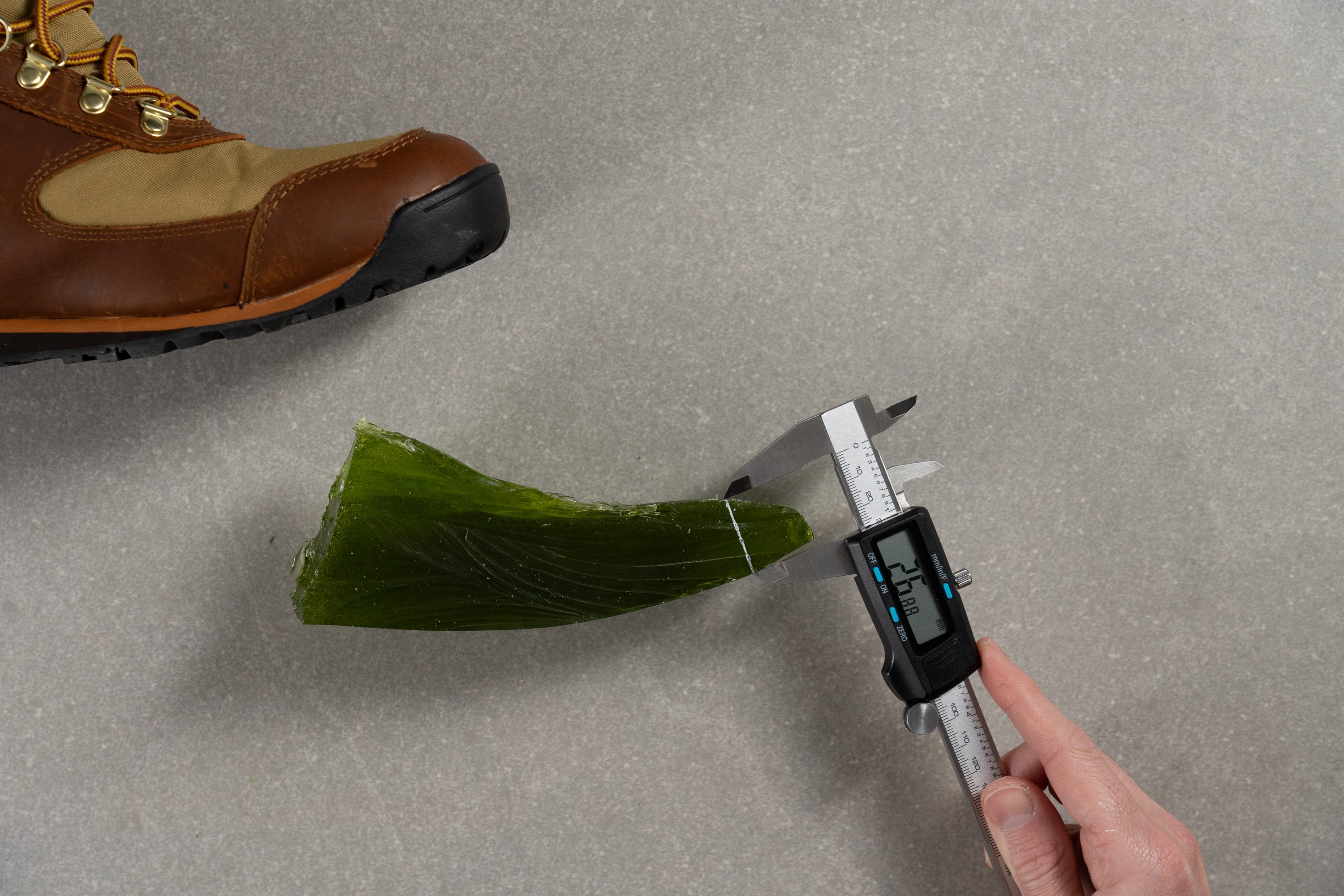
| Jag | 26.9 mm |
| Average | 27.4 mm |
Traction / Grip
Lug depth
Danner uses moderately deep lugs to make the Danner Jag more versatile for trail-to-town wear.
Our calliper shows that the lugs are slightly shallower than average at 3.7 mm.
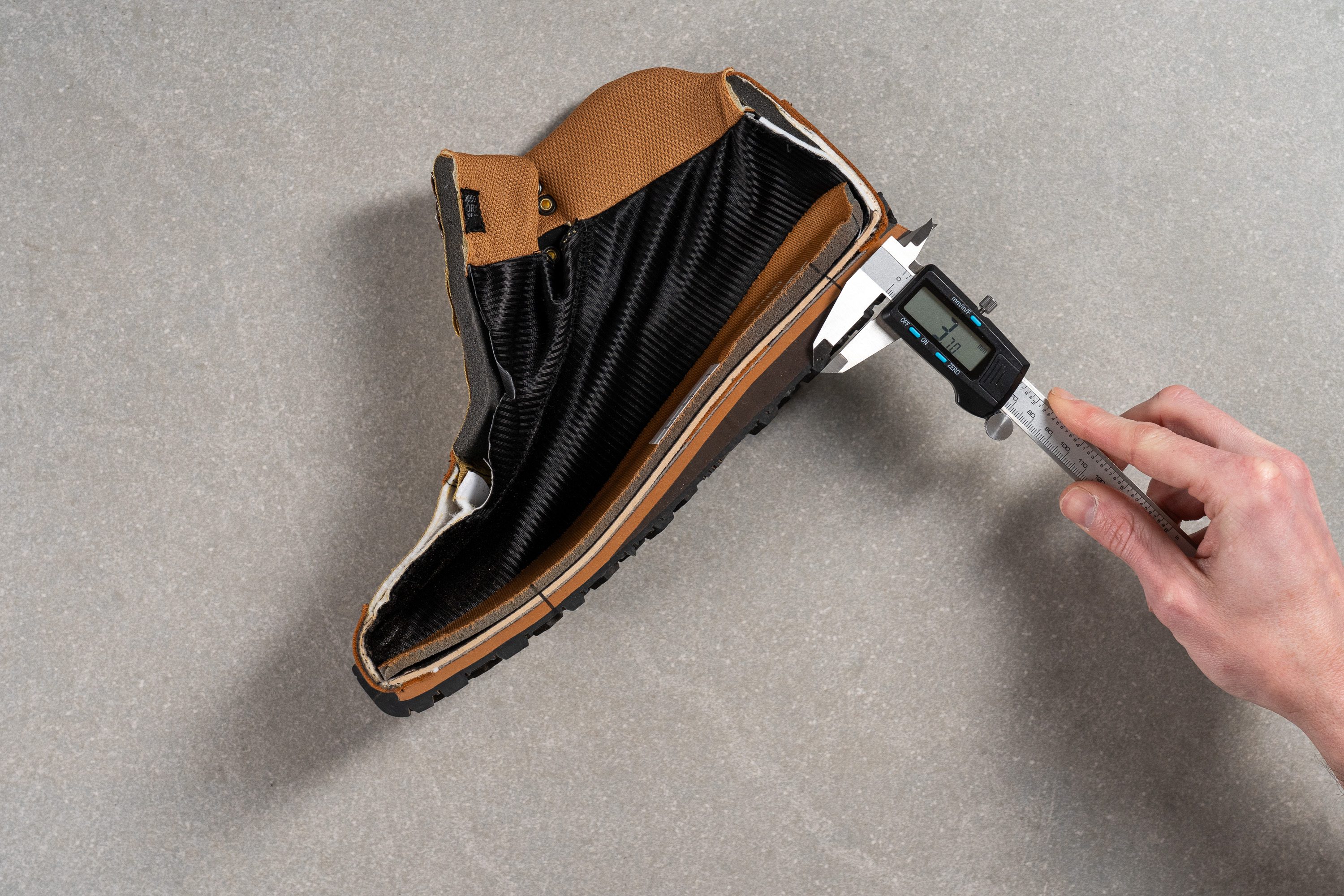
The boot also features a retro waffle outsole pattern which makes it comfortable on the pavement but grippy enough on the trail.
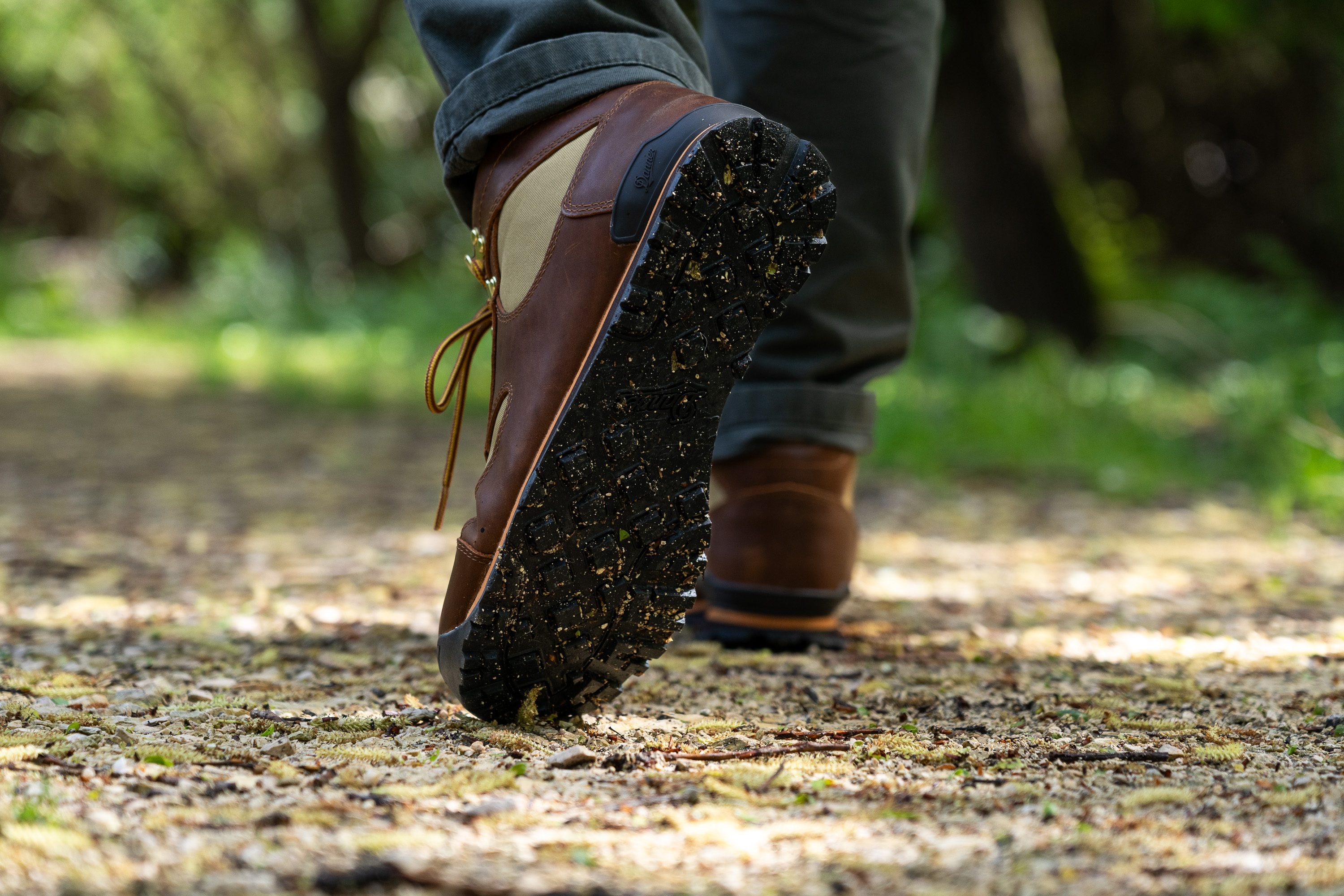
| Jag | 3.7 mm |
| Average | 4.3 mm |
Flexibility / Stiffness
When Danner reintroduced the Jag, the intention was to make the boot more versatile and consequently, more flexible too. We discovered that the Jag indeed became more flexible compared to its former backpacking boot self.
Measuring how much force it takes to bend this boot to a 30-degree angle, we found that it takes less than average indeed! At 24.1N, it is not only more pliable than average but also significantly bendier than its Danner counterparts like the Mountain 600 (34.8N) and the Mountain Light (43.5N).
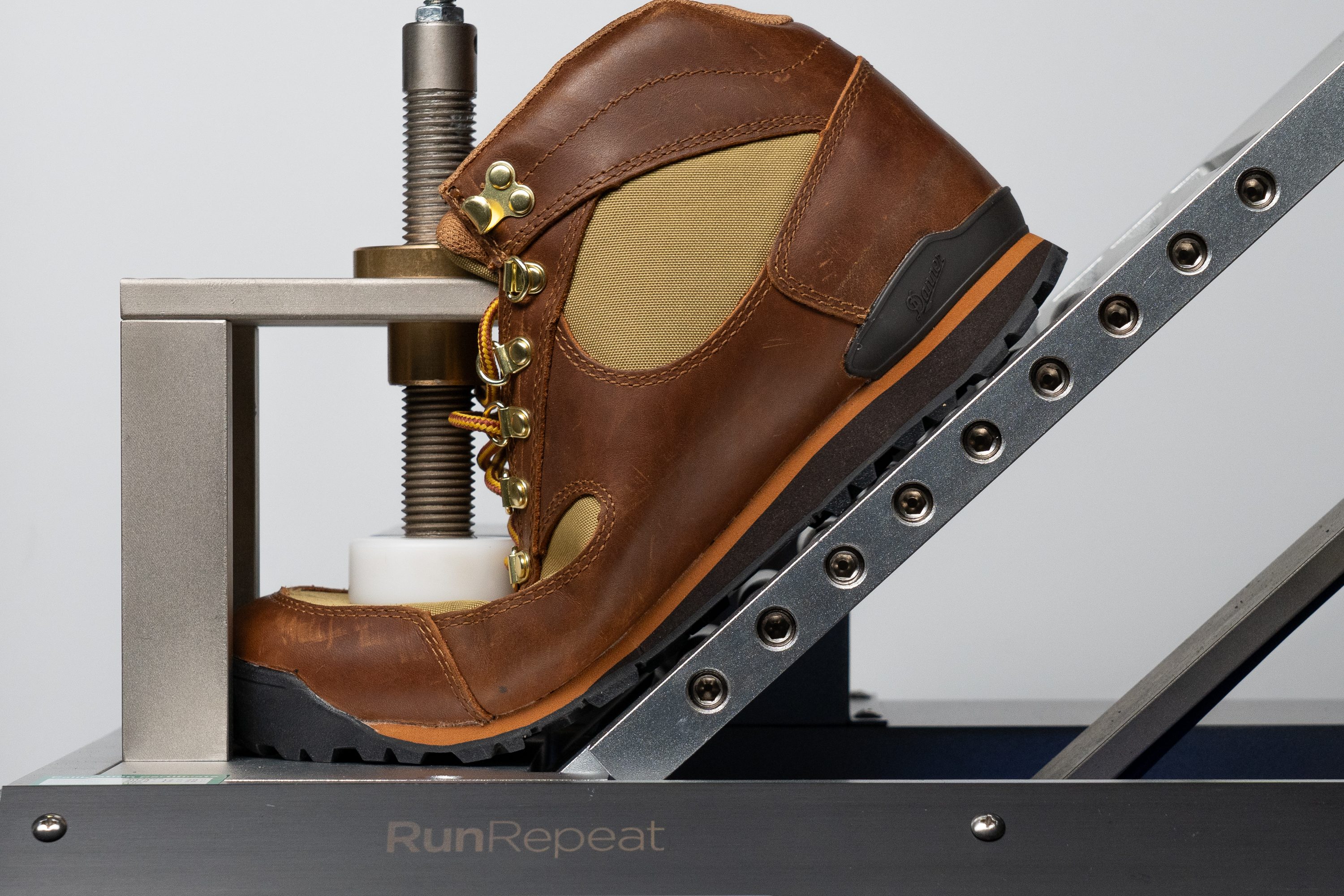
| Jag | 24.1N |
| Average | 31.5N |
Stiffness in cold (%)
This Danner boot doesn't stiffen up in low temperatures either.
After keeping the boot in the freezer for 20 minutes, we found that it only got 3.1% stiffer. Most hiking boots in our lab get about 26% more rigid.
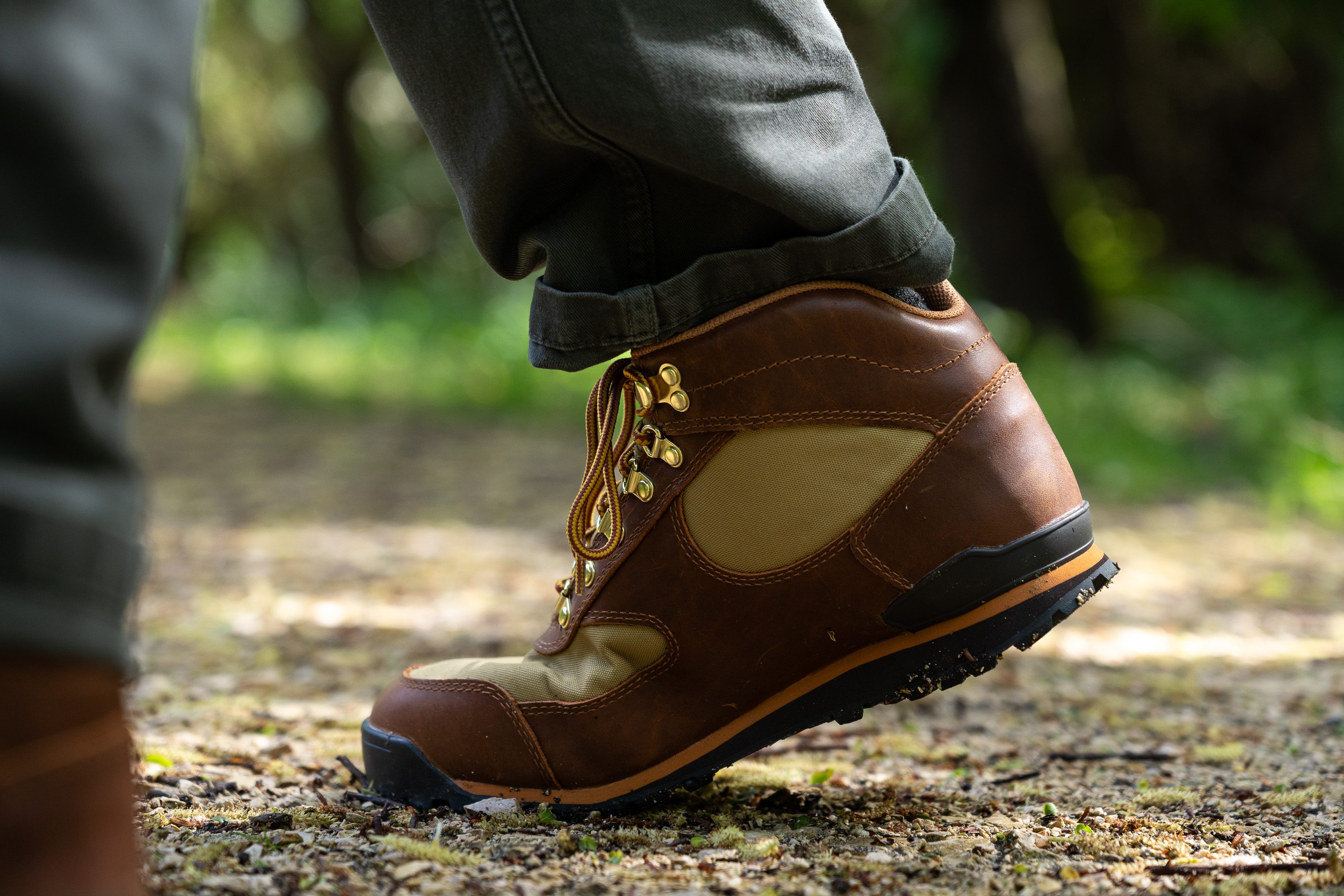
| Jag | 3% |
| Average | 24% |
Weight
Having tested the Danner Mountain 600 (18.7 oz/529g) and the Danner Mountain Light (28.3 oz/802g), we are genuinely surprised with the lightness of the Danner Jag!
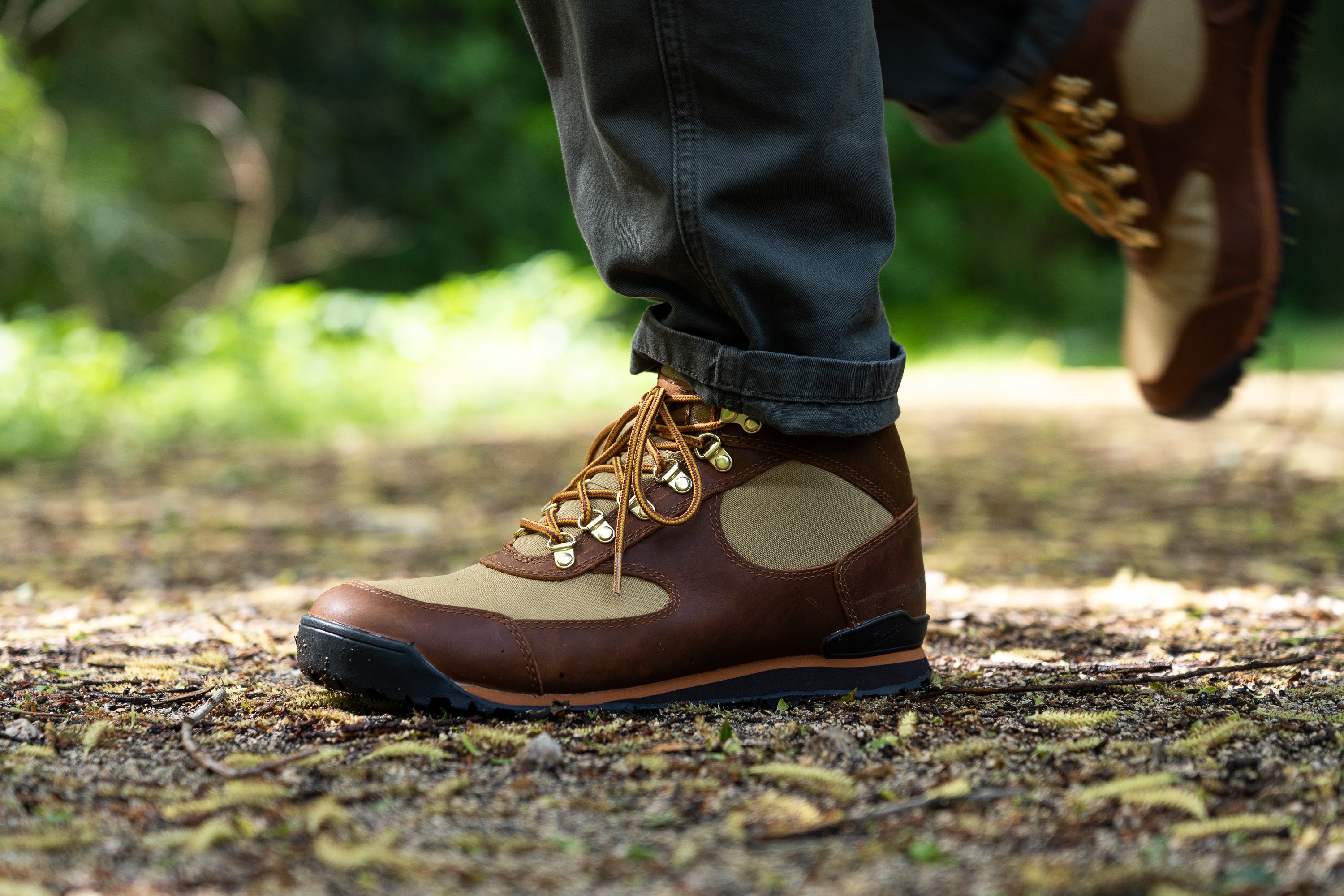
Tipping our scale at 17.0 oz (482g) in a men's US size 9, the Jag is even lighter than the average! It did feel pleasantly light on our feet too.
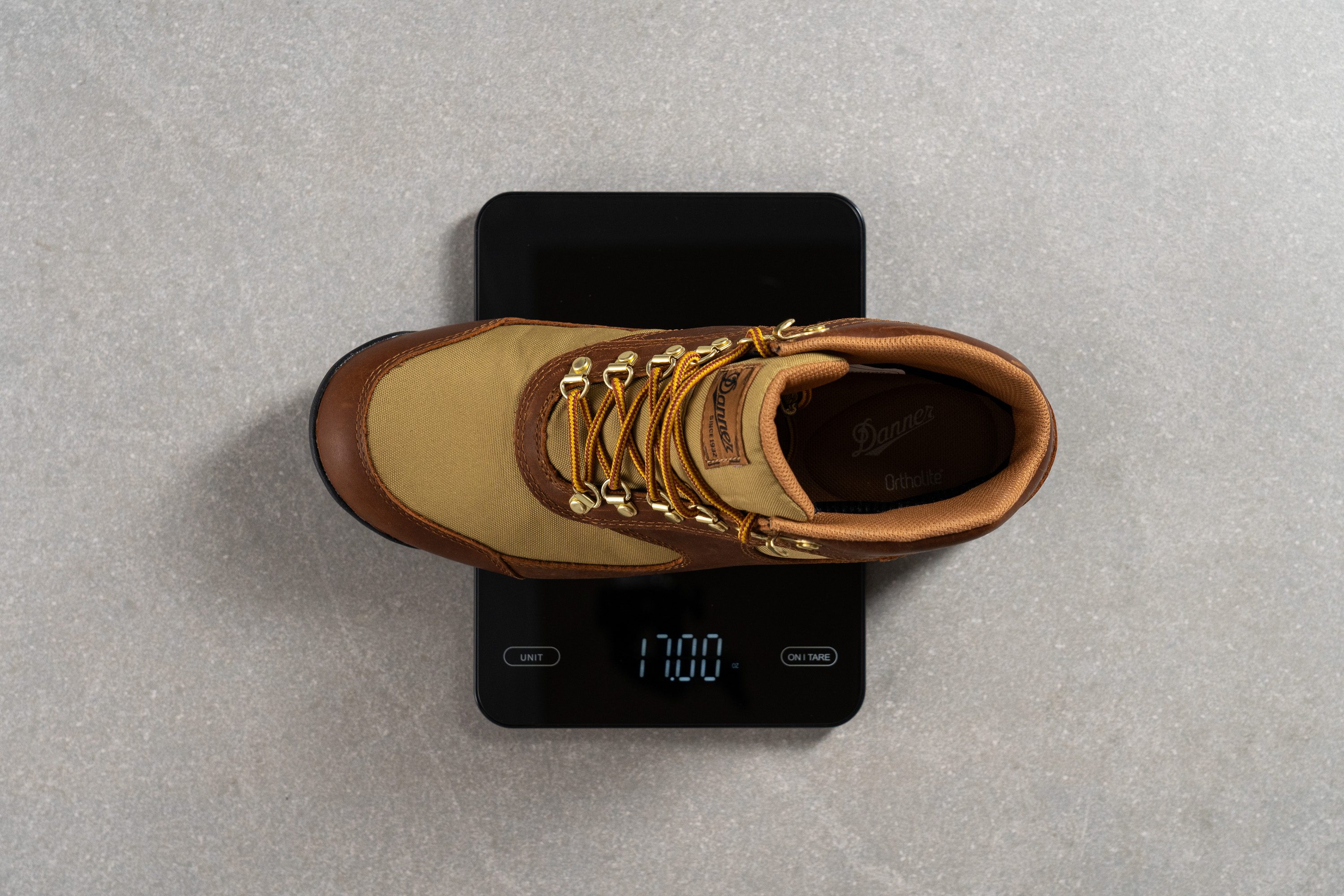
| Jag | 17.0 oz (482g) |
| Average | 18.7 oz (531g) |
Breathability
A series of breathability tests convinced us that the Danner Jag is ONLY meant for the cold season.
The boot features a solid upper that doesn't let the heat escape so easily. Even when we filled its interiors with smoke, not a single streak came out on the other side.
Even when we hovered the boot's half-cut upper over the light, it didn't reveal any secret ventilation holes. The boot's textile panels don't promise any breathability.

Looking at the fabric through our microscope, we saw incredibly thick, sturdy, and tightly woven threads. Paired with the boot's waterproof lining, it eliminates the airflow for good.
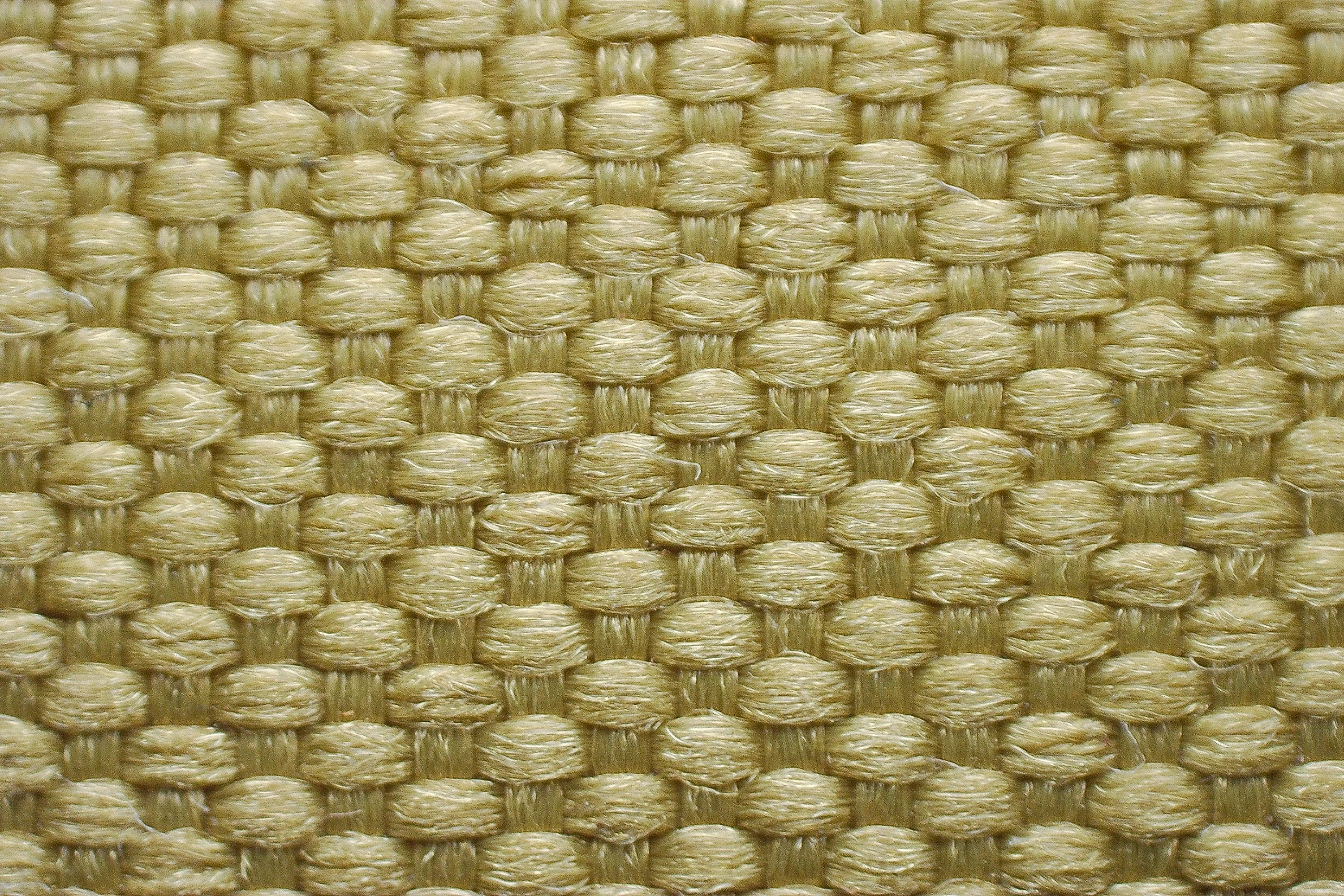
Rating the Danner Jag's breathability on a 1-5 scale was very easy. The boot just got the lowest score of 1.
| Jag | 1 |
| Average | 1.3 |
Waterproofing
We have put the Danner DRY waterproofing through several outdoor scenarios: heavy rain, deep puddles, creek crossings, and muddy streaks.
Not a single time did we come back with wet feet! Even when we stepped ankle-deep into the water, the boot kept all moisture at bay.
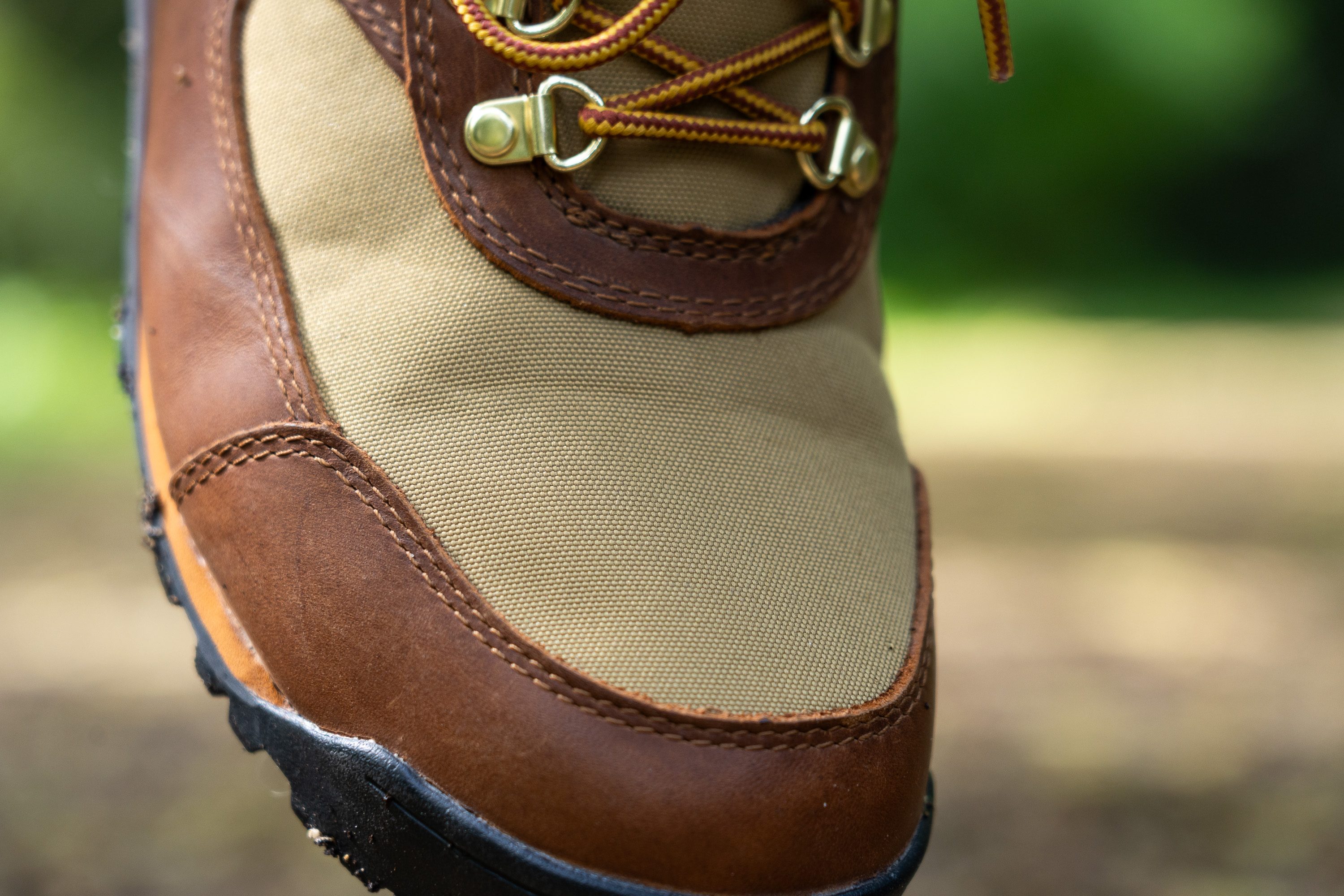
Stability
Lateral stability test
Inspired by stiff leather boots of the past, the Danner Jag pulls cues from their highly stable construction too.
The boot gave us a very solid footing on uneven terrain. We never felt off-balance and not even close to twisting our ankles.
Torsional rigidity
Despite not having a shank, the Danner Jag features a very high level of torsional rigidity.
In our manual test, we could barely give it the smallest twist! Its platform is just that stiff. On a 1-5 stiffness scale, we confidently gave it a score of 4.
The boot made us feel surefooted even with our heavier backpacks on.
| Jag | 4 |
| Average | 4.4 |
Heel counter stiffness
Our heels and ankles remained fixed in place thanks to the boot's extra sturdy heel counter.
Giving it a push-and-squeeze in our manual test, we rated the heel counter stiffness with the highest score - 5 out of 5!
A stiff TPU clip around the base of the heel also contributes to a secure feel. We experienced ZERO slipping or shifting around in the rearfoot.
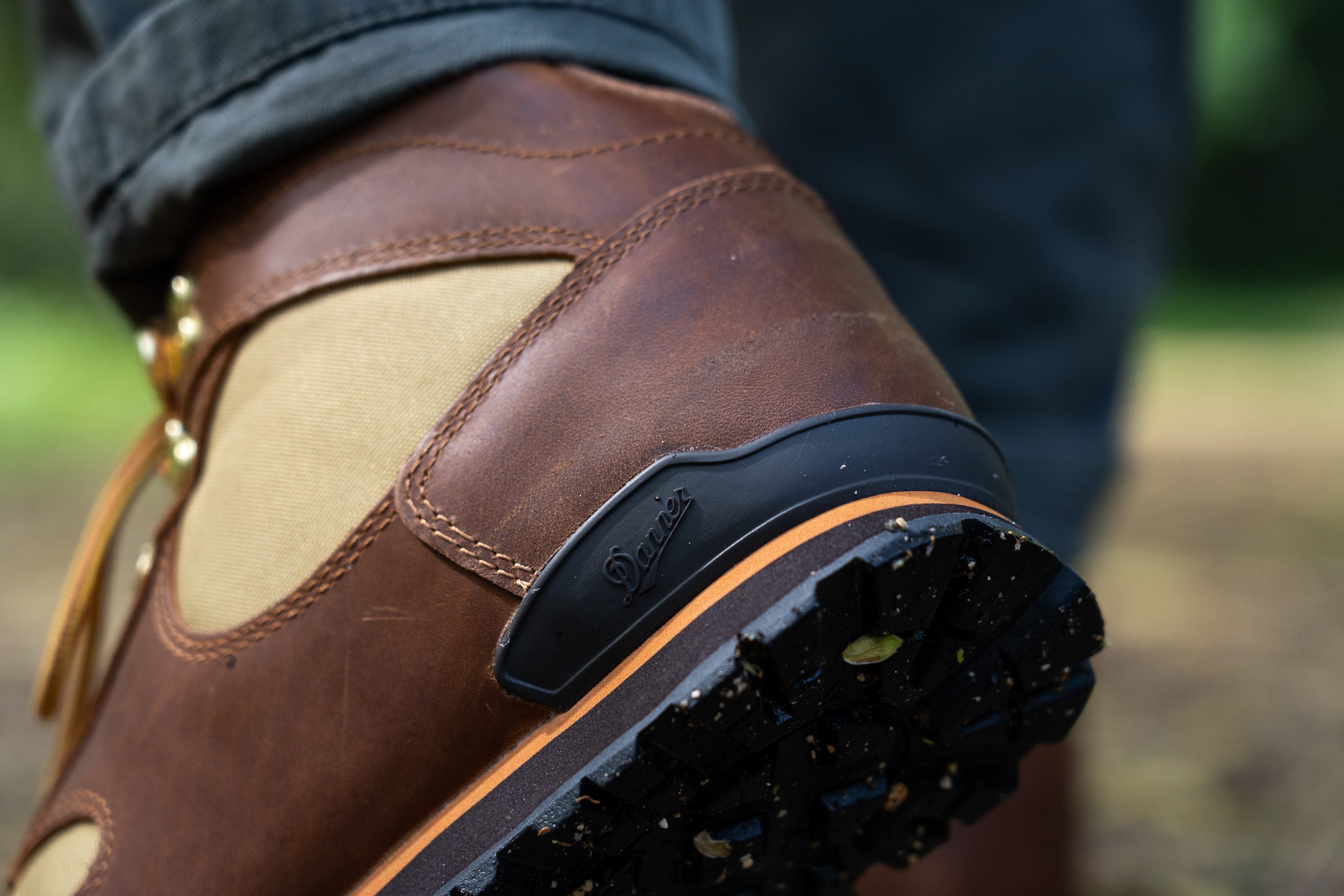
| Jag | 5 |
| Average | 3.6 |
Midsole width - forefoot
Following the old-fashioned boot silhouette, the Danner Jag gets a bit narrower than average in the platform. But luckily, not at the cost of stability!
In the widest part of the forefoot, our calliper showed 103.3 mm which is about 9 mm narrower than average. Not critically narrow but right on the edge, we would say.
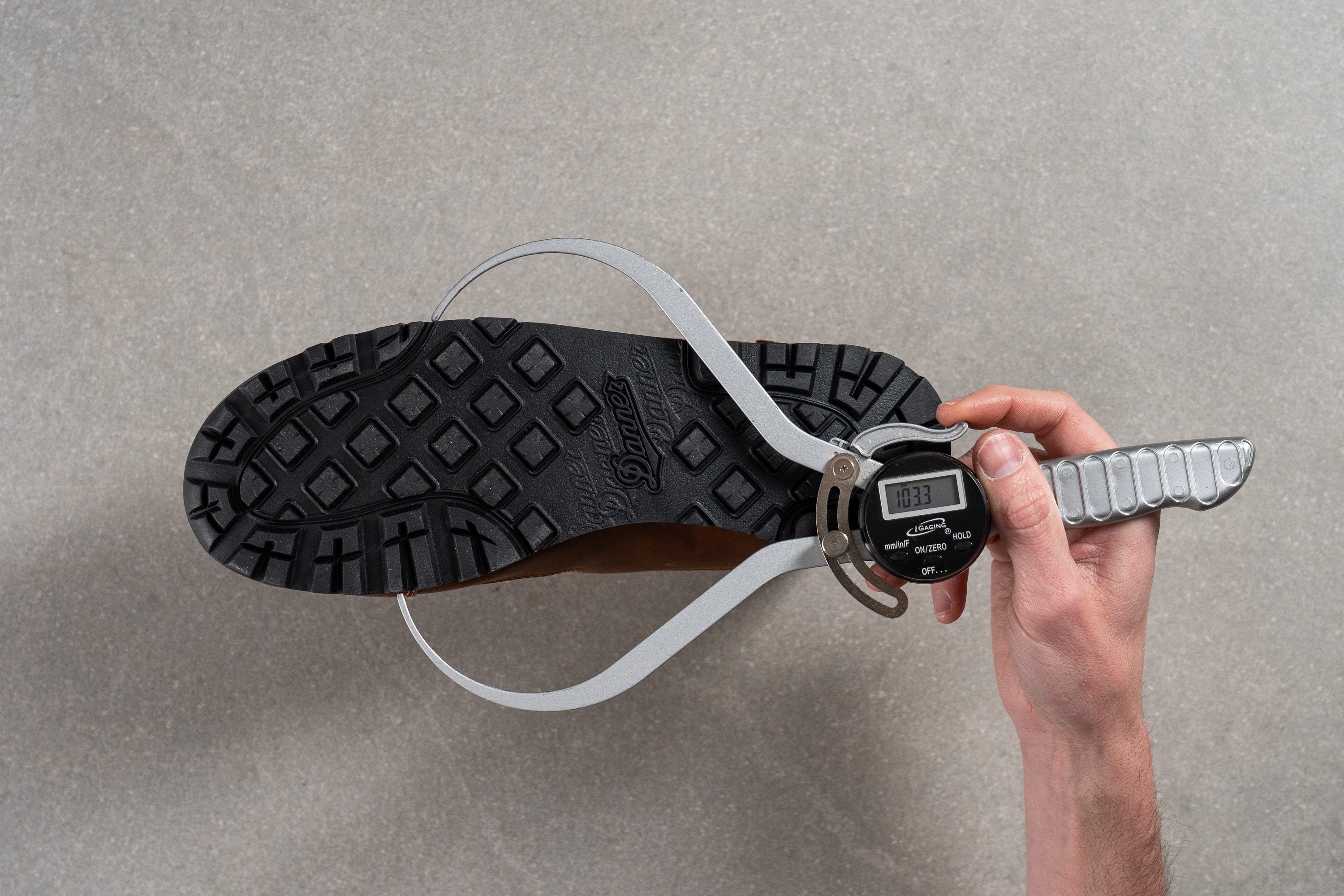
| Jag | 103.3 mm |
| Average | 111.5 mm |
Midsole width - heel
The platform narrows towards the back, showing only 82.7 mm in the widest part of the heel. Once again, that's about 5 mm narrower than the average of hiking boots.
Considering the slightly curved shape of the sole, we think that people with flat feet and severe overpronation might feel tippy in this Danner boot. There is not much platform to lean on the inner side of the boot.
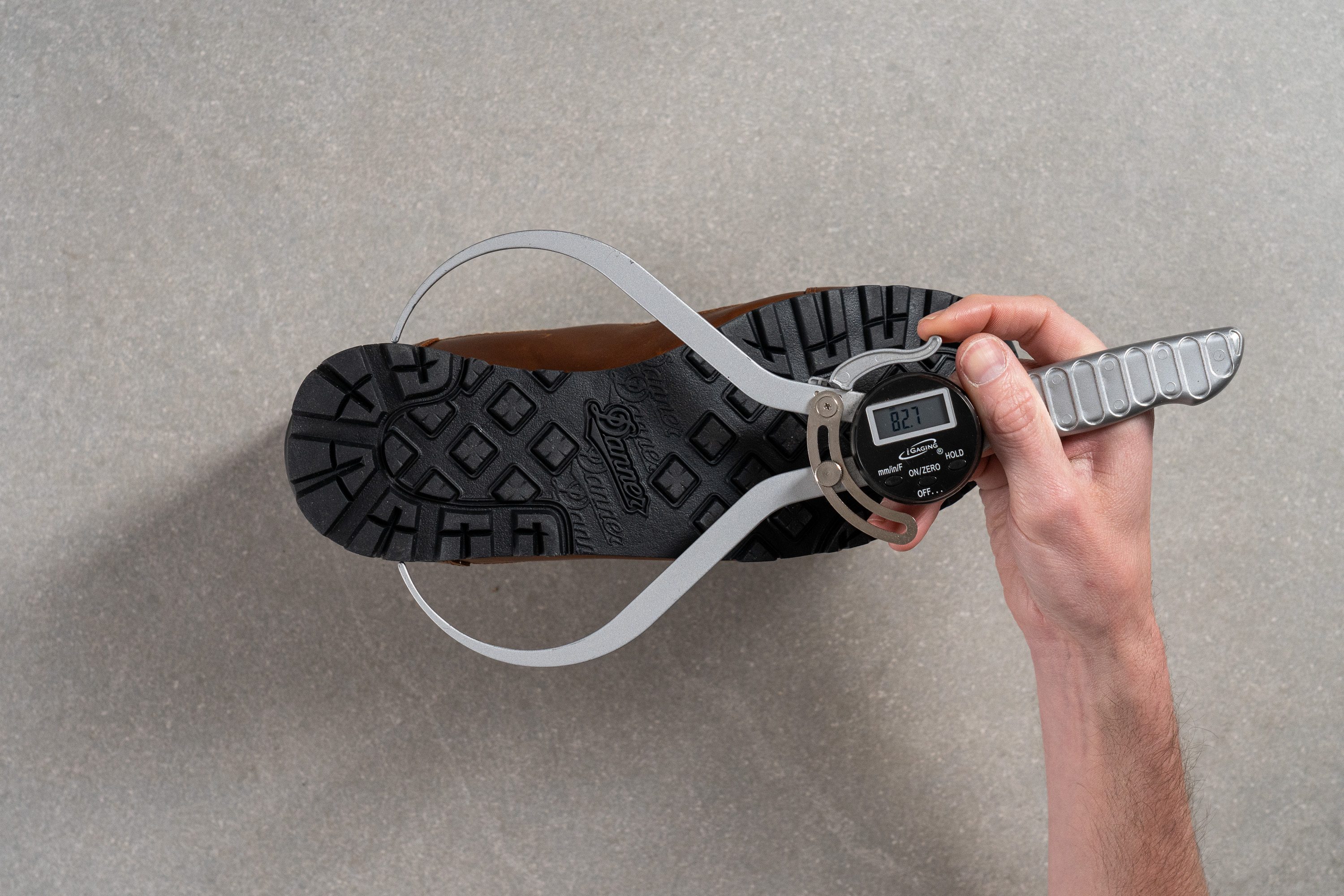
| Jag | 82.7 mm |
| Average | 87.6 mm |
Durability
Toebox durability
The Danner Jag's upper durability varies depending on the material used in a given boot.
Some models are made of full-grain leather and Cordura fabric (priced at £200) and promise a more hard-wearing upper. Others are made of suede and nylon or textile (priced at £190) which may not be as wear-resistant but are still durable.
In this review, we are testing the boot's suede-and-textile option. We use a Dremel with a sandpaper tip to check how much damage it will cause to the upper in 12 seconds compared to other hiking boots.
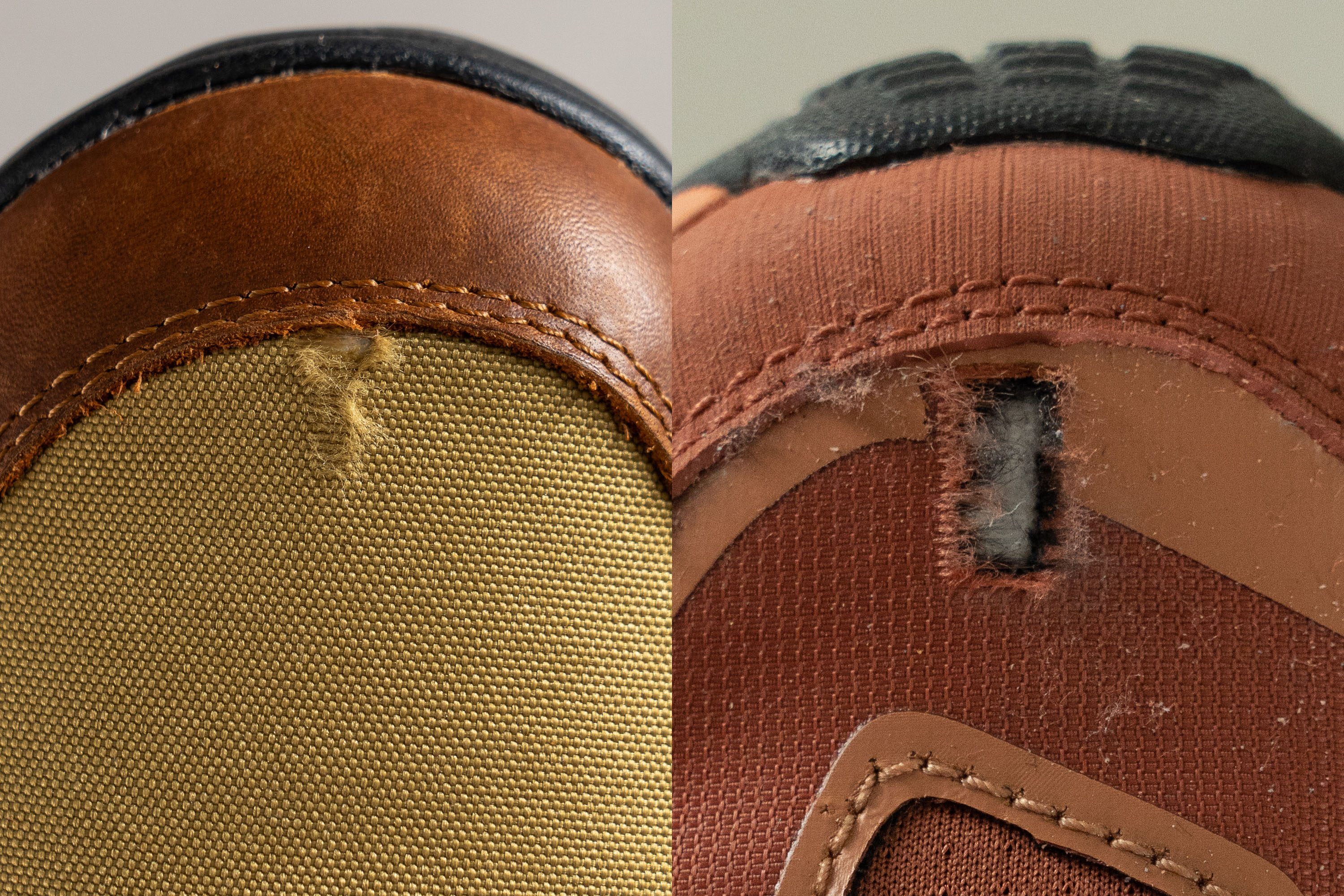
Considering Danner's pride in quality, we expected nothing less than excellent! Even the boot's unprotected textile panel got away with a minor scuff.
On a 1-5 scale, where 5 is the most durable, we confidently rated the Jag's toebox with 4.
| Jag | 4 |
| Average | 4.3 |
Heel padding durability
The inner lining of a waterproof boot is just as important as the outer shell. That's because a single tear in this lining will compromise the boot's overall waterproofing ability.
To see how it holds up, we applied our Dremel to the inner side of the boot's collar and drilled it for 4 seconds.
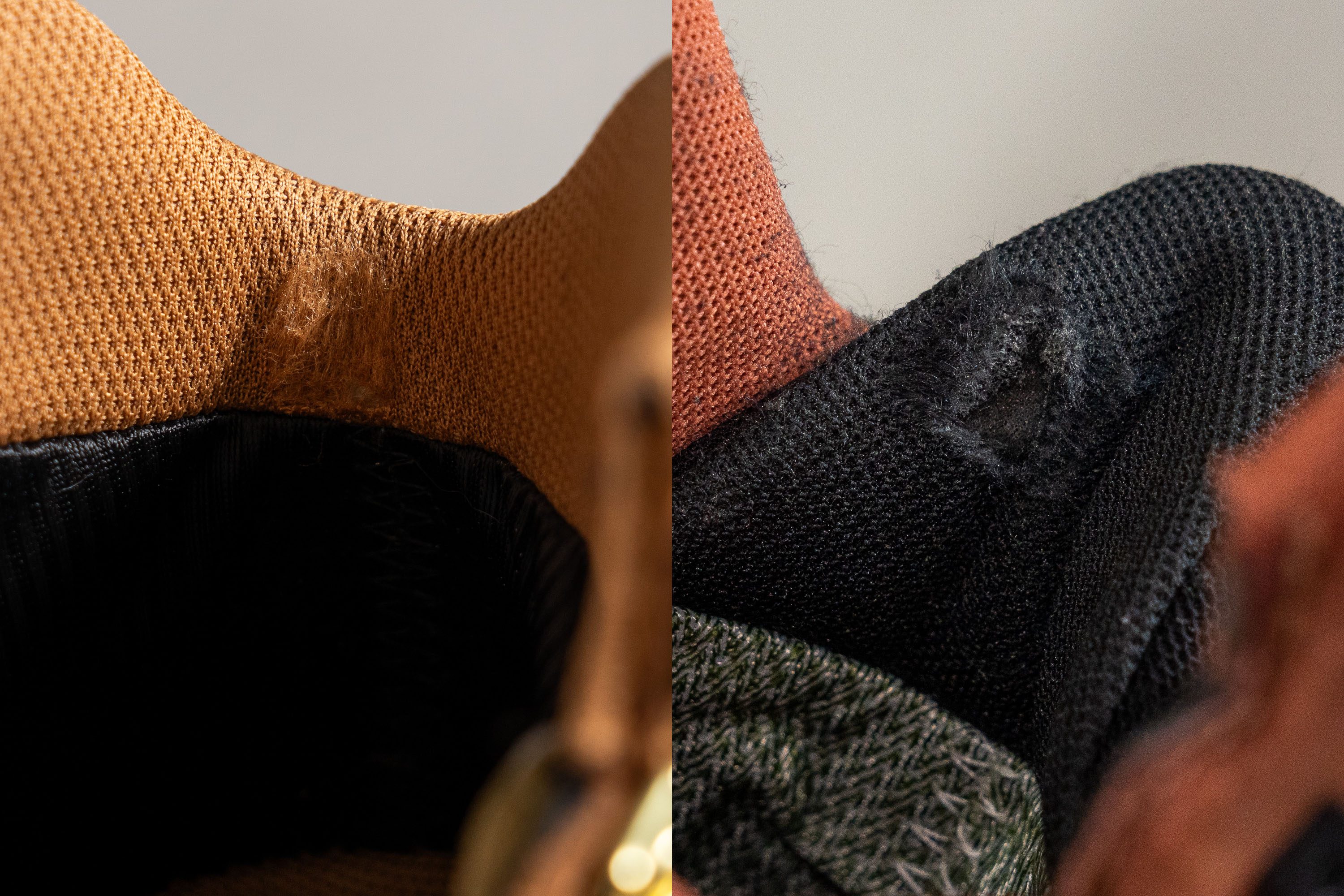
The result was quite reassuring as the damage was notably smaller than what we often see in hiking boots.
Assessing the Jag's heel padding durability, we gave it a solid 4 out of 5.
| Jag | 4 |
| Average | 3.6 |
Outsole hardness
Another crucial part of any hiking boot is of course the outsole. Losing it means that you lose the initial grip and foot protection.
To our delight, the rubber on the Danner Jag proved to be incredibly sturdy! It is one of the hardest compounds we've seen in hiking boots which is a surefire sign of wear resistance.
Our durometer showed a reading of 92.1 HC which is harder than 99% of our lab-tested hiking boots!
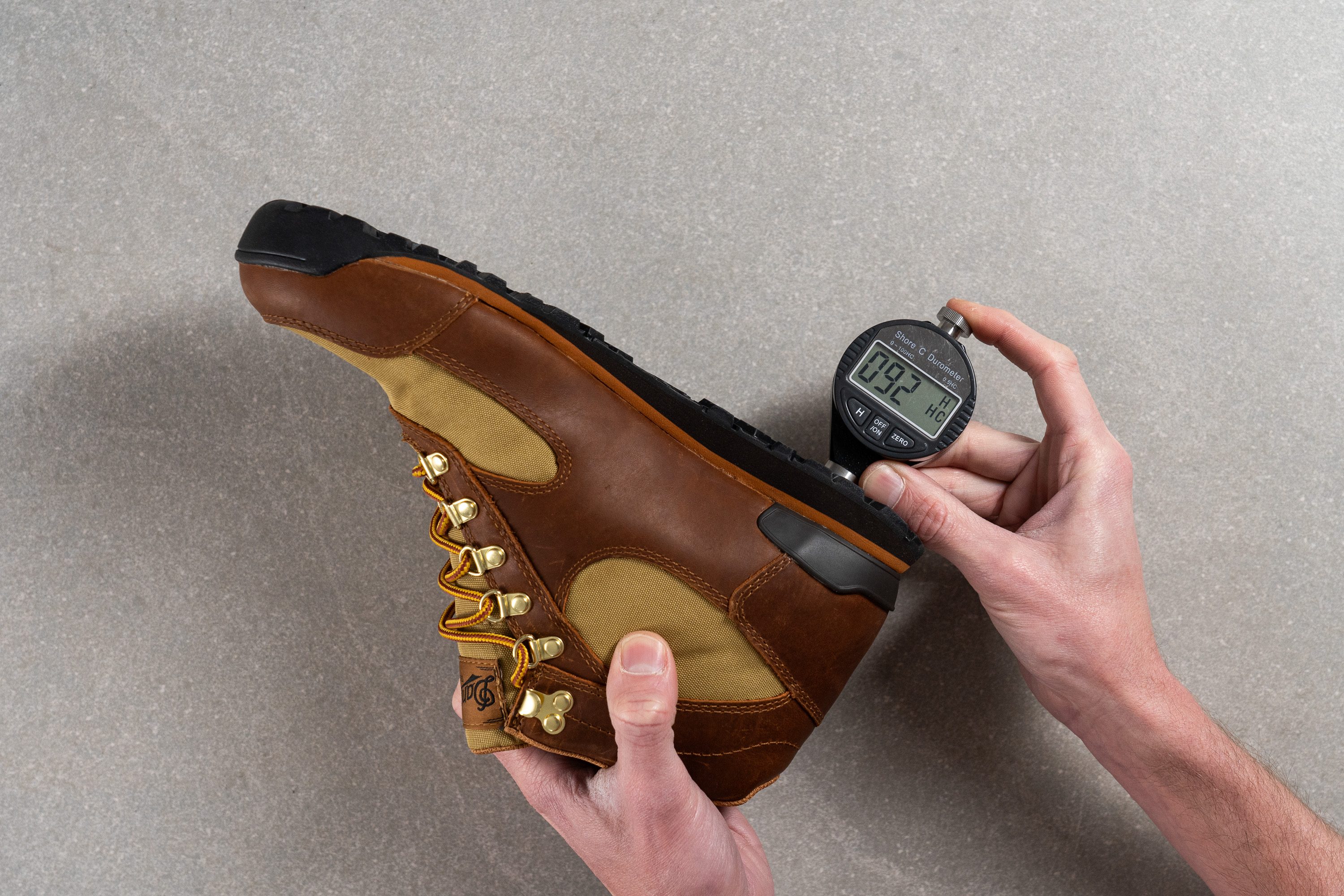
| Jag | 92.1 HC |
| Average | 87.1 HC |
Outsole durability
To put the boot's outsole through its paces, we turned up the Dremel speed to the relentless 10K RPM. We also held its tip against the rubber for a longer time of 22 seconds.
As you can see from the video above, the Dremel tip barely shaved any rubber off the outsole! There was no tread loss whatsoever!
The Danner Jag showed some of the best results in the outsole durability test - the damage was as shallow as 0.5 mm! This hiking boot guarantees a longer-than-average shelf life, even if it is regularly exposed to abrasive trails.
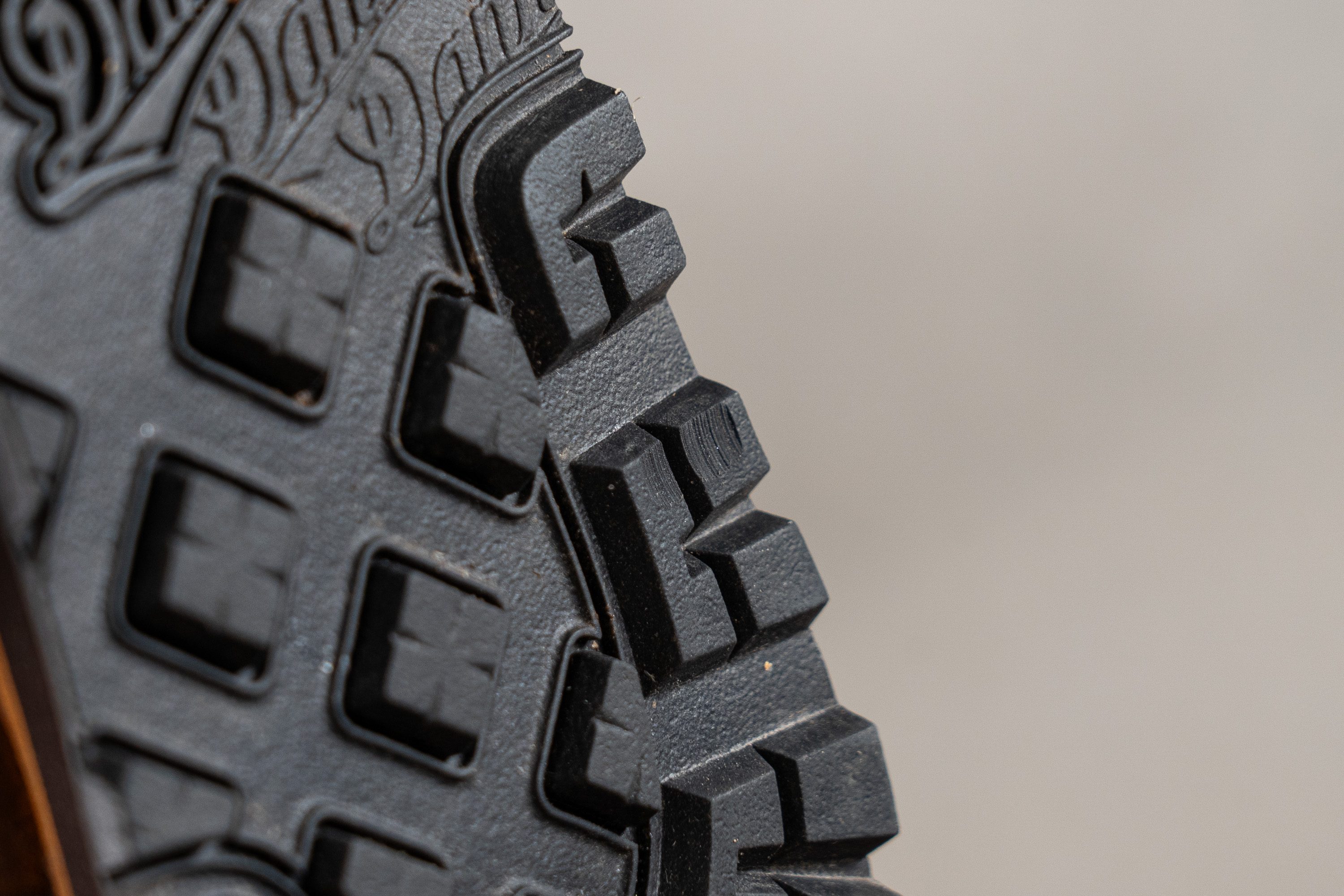
| Jag | 0.5 mm |
| Average | 0.8 mm |
Outsole thickness
Based on our caliper measurements, the Jag's outsole is a bit thinner than average at 2.6 mm. But considering how hard-wearing it is, we think it's enough for the boot's long and happy life.
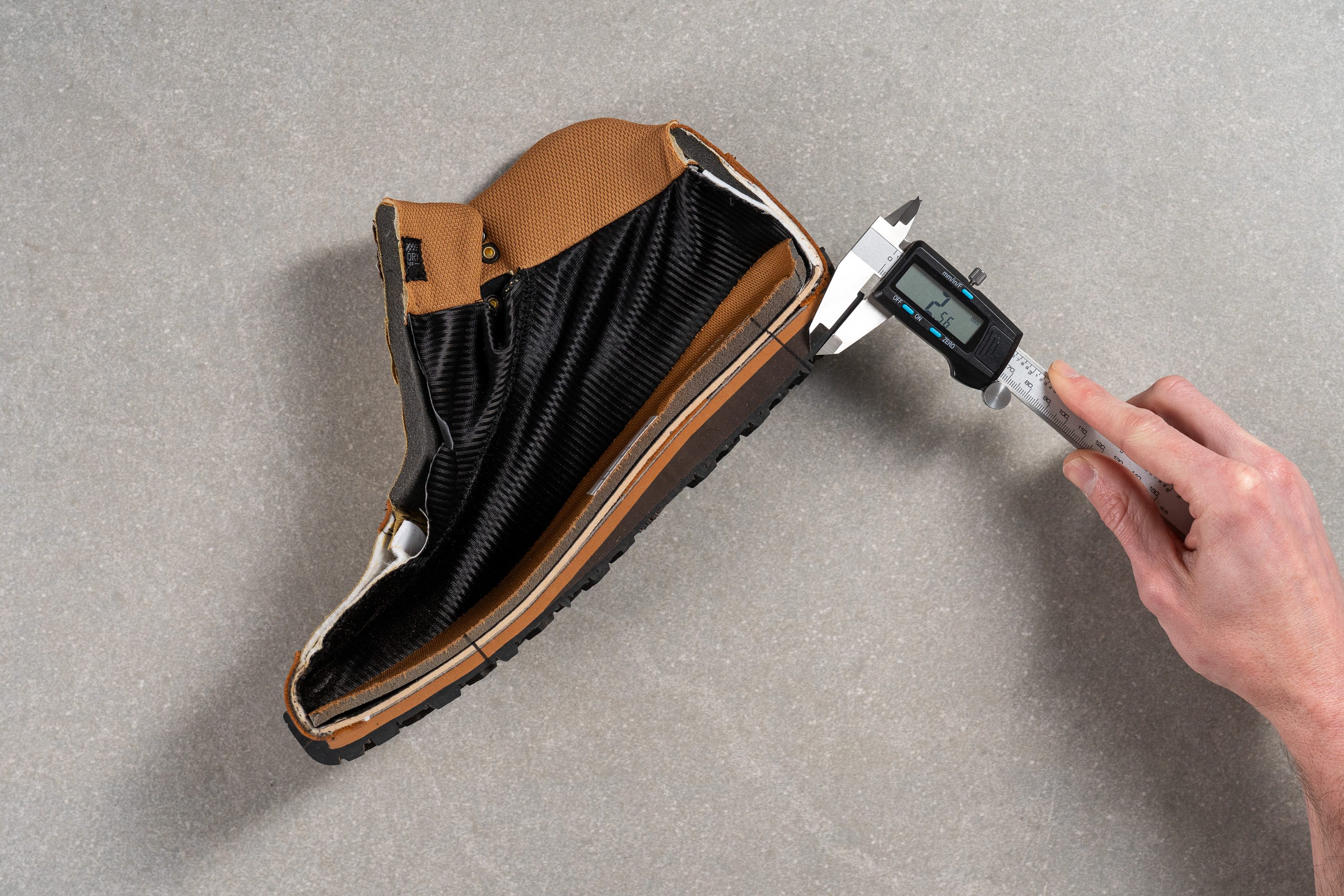
| Jag | 2.6 mm |
| Average | 2.9 mm |
Misc
Insole thickness
Luckily, the boot features a generously padded insole on top of the hard platform.
It is a 7.1 mm thick OrthoLite footbed with a pleasantly soft touch and open-cell design for better airflow.
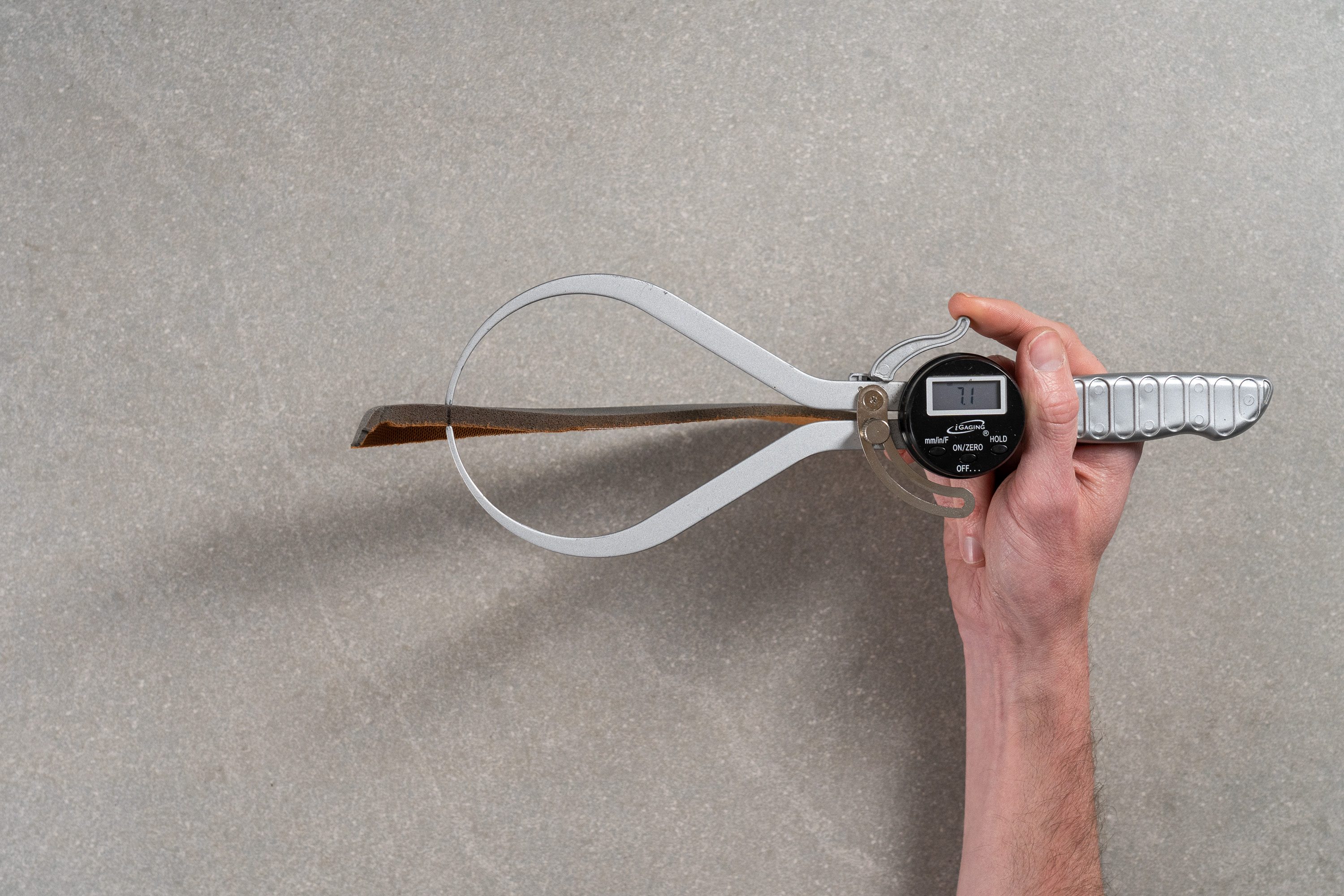
| Jag | 7.1 mm |
| Average | 6.0 mm |
Removable insole
The boot's OrthoLite insole is easily removable in case you need to boost comfort with a custom orthotic.
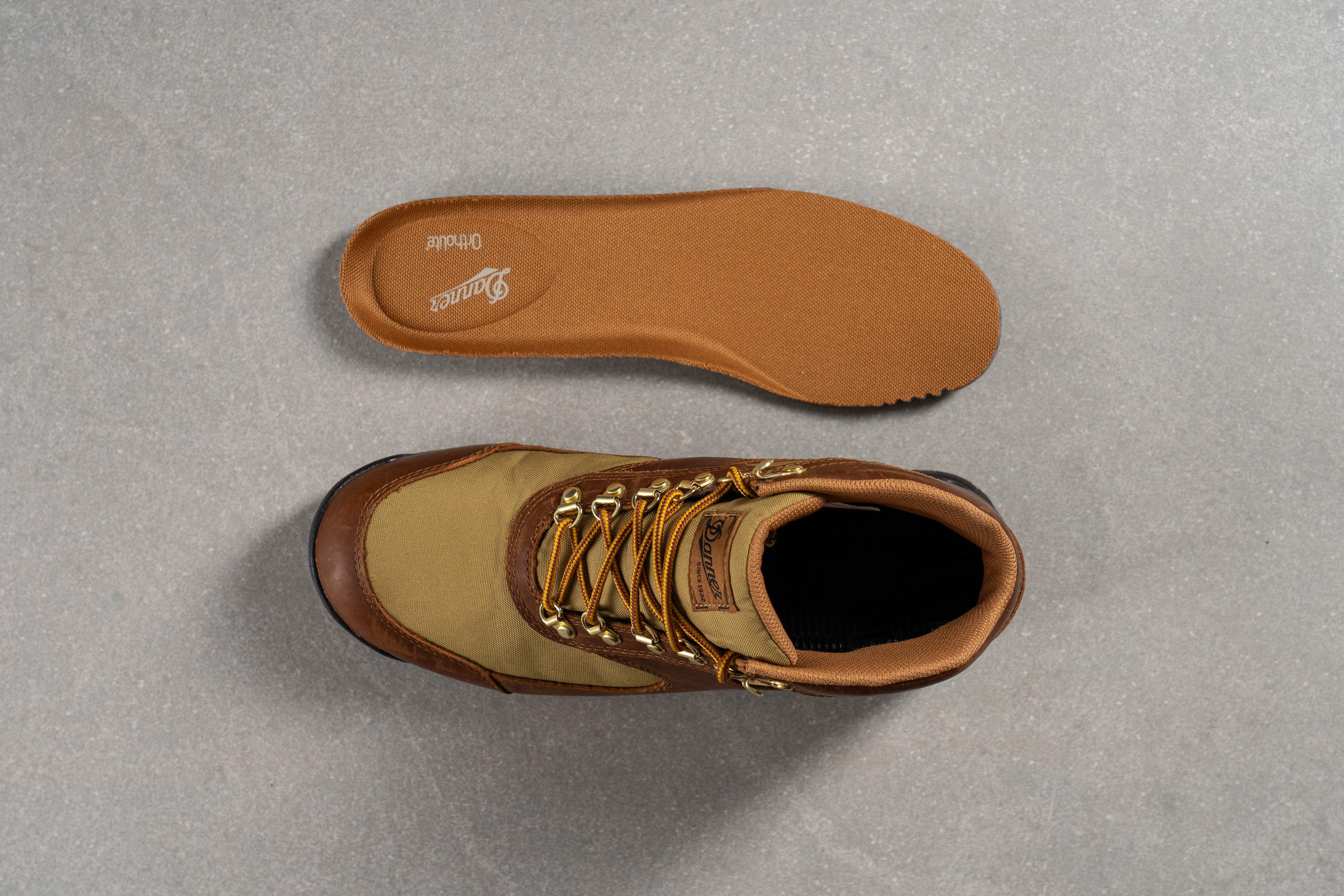
| Jag | Yes |
Midsole softness in cold (%)
On the bright side, firm boots rarely get any firmer in cold weather.
After spending 20 minutes in our freezer, hiking boots get about 20% harder in the midsole. The Danner Jag, however, only got 5.3% firmer!
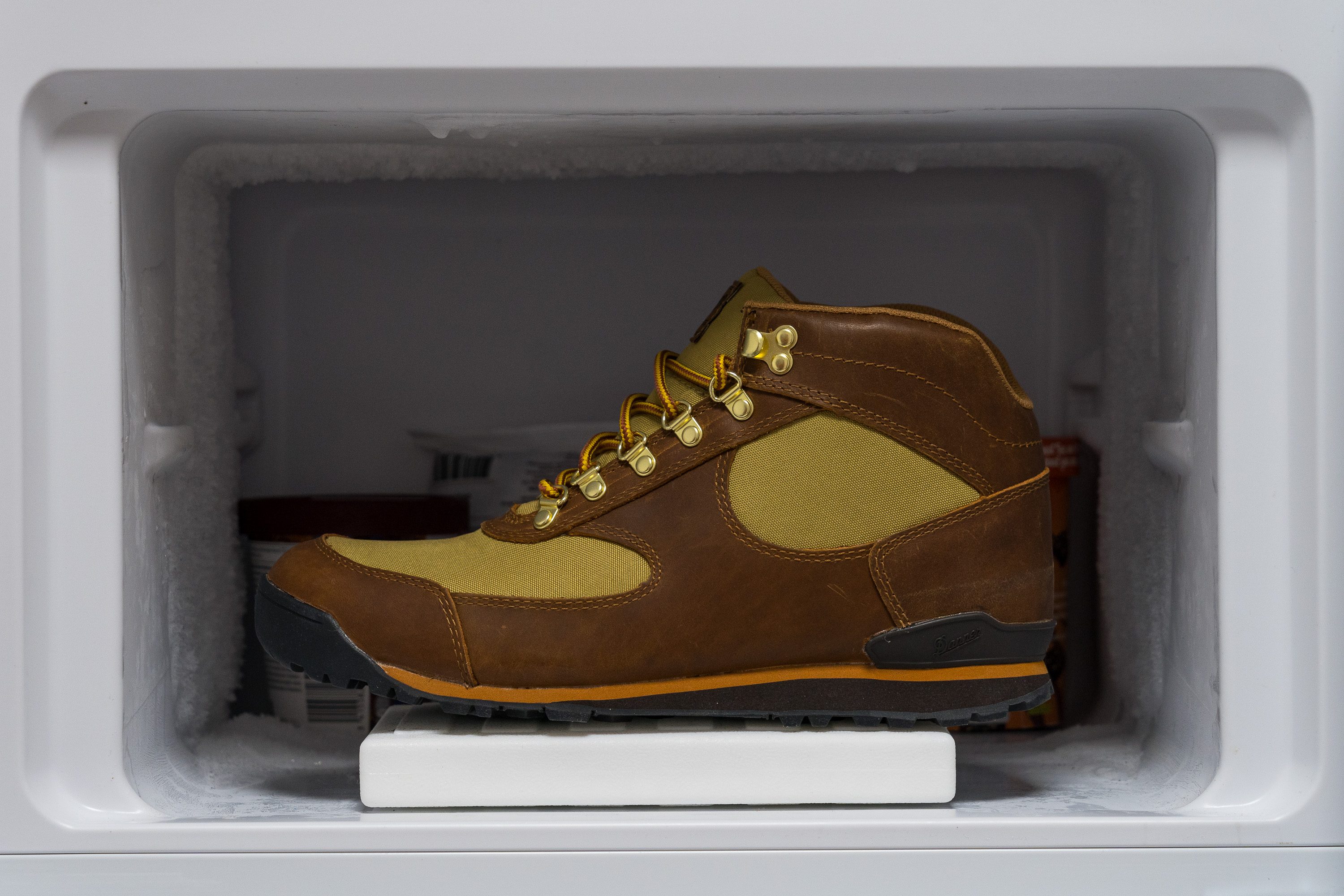
| Jag | 5% |
| Average | 20% |
Reflective elements
There are no reflective elements on the Danner Jag given its old-fashioned hiking boot design.
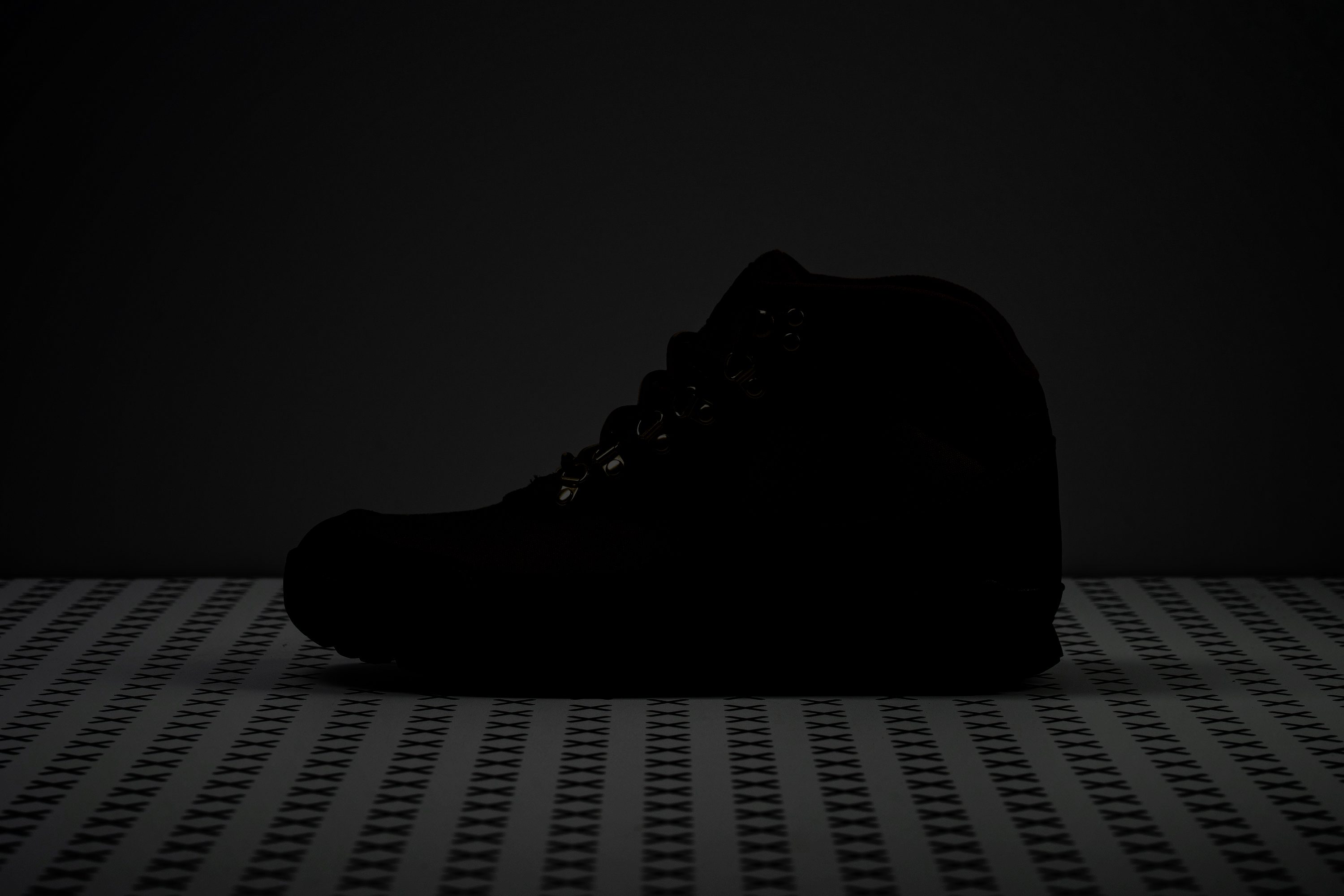
| Jag | No |
Tongue padding
The Jag's tongue is sufficiently padded to create a cosy wrap around the instep and prevent lace bites.
Measuring its thickness with a calliper, we got 9.3 mm which is typical for a hiking boot.
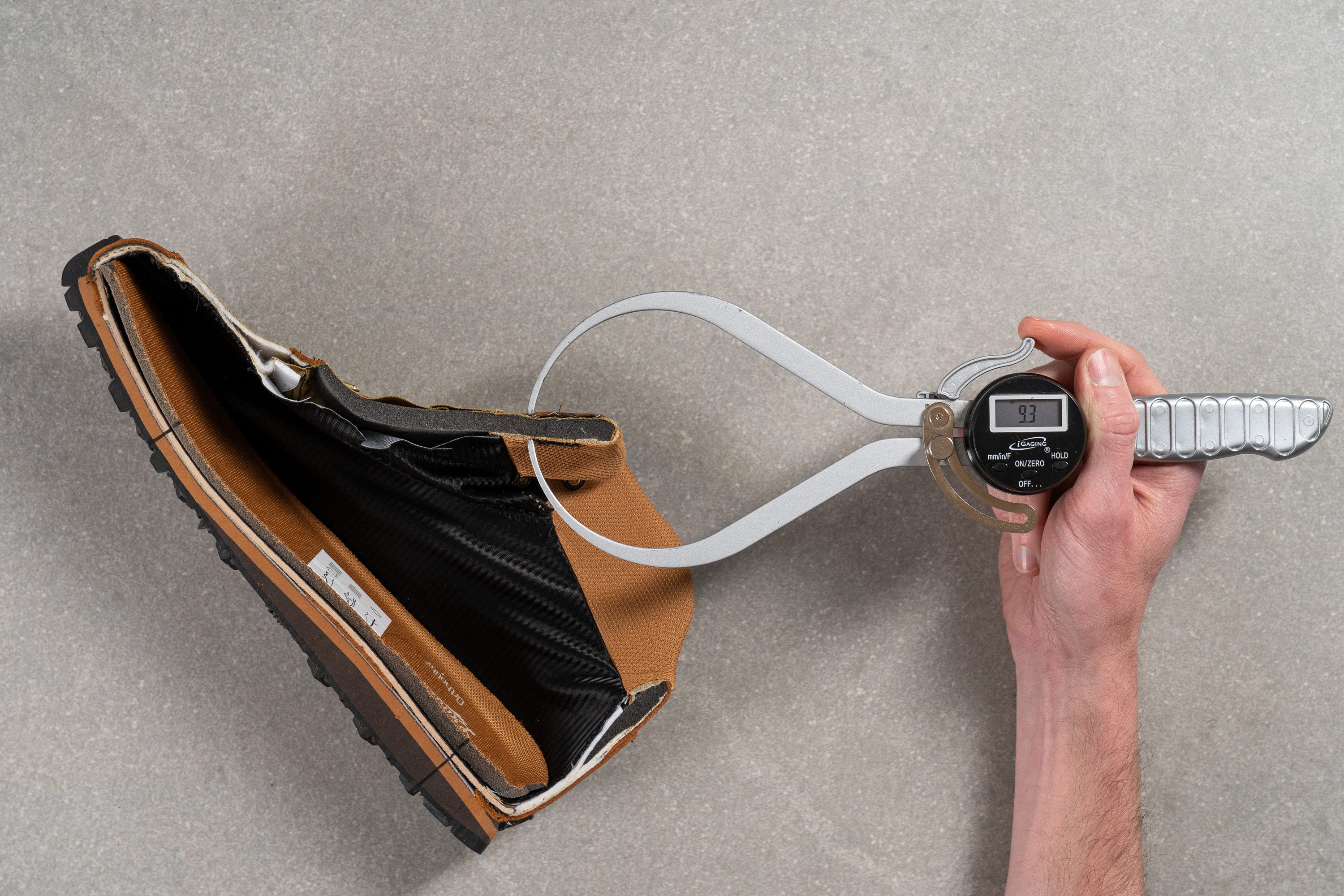
| Jag | 9.3 mm |
| Average | 11.2 mm |
Tongue: gusset type
The boot's tongue is fully integrated into the upper. It is a necessary feature for a waterproof boot as it prevents water and debris from getting inside.
We also found that it contributes to a very secure lockdown around the ankle.
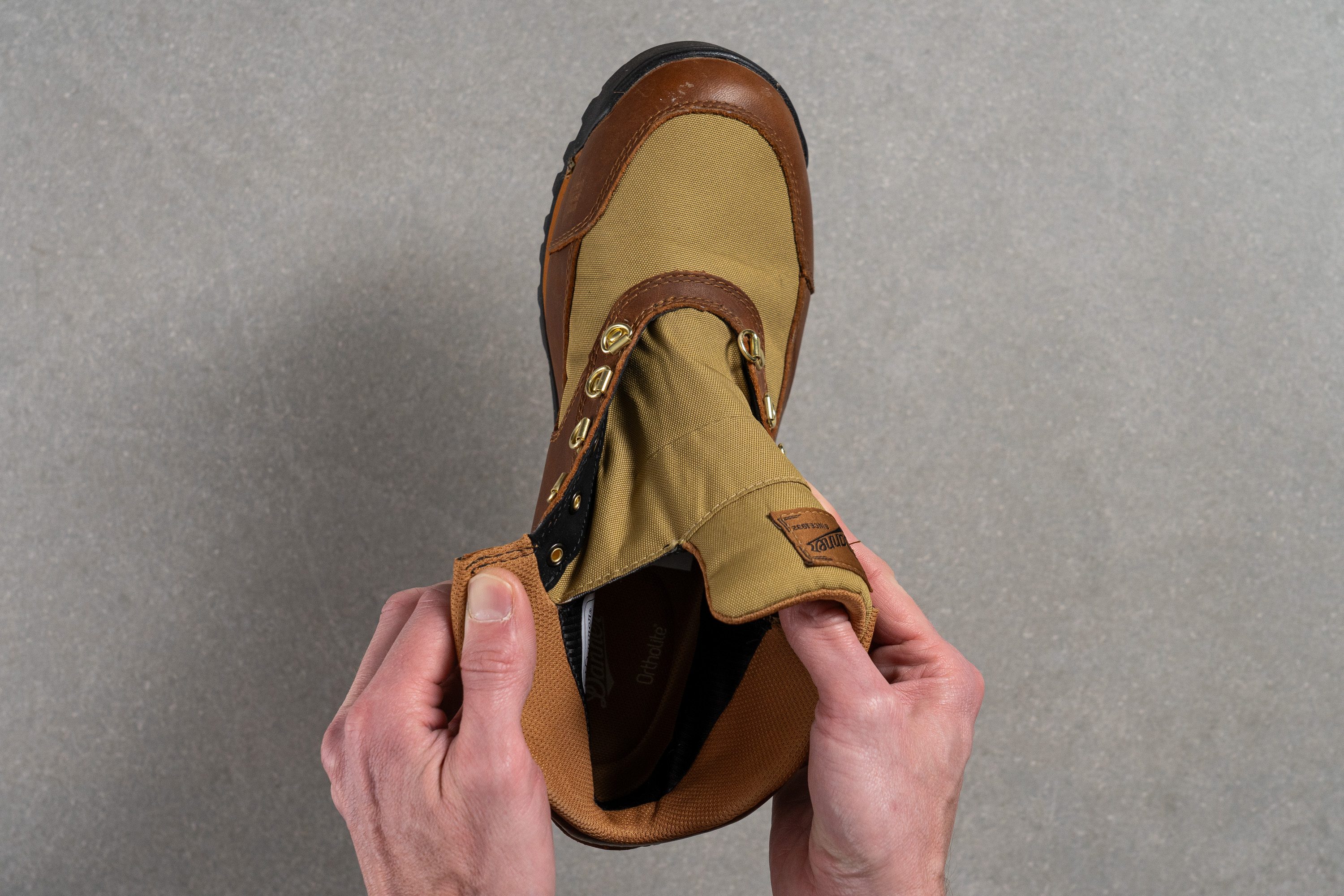
| Jag | Both sides (full) |
Heel tab
There are no pull tabs or finger loops on the Danner Jag. But thanks to lace hoops, it is very quick and easy to unlace and put on.
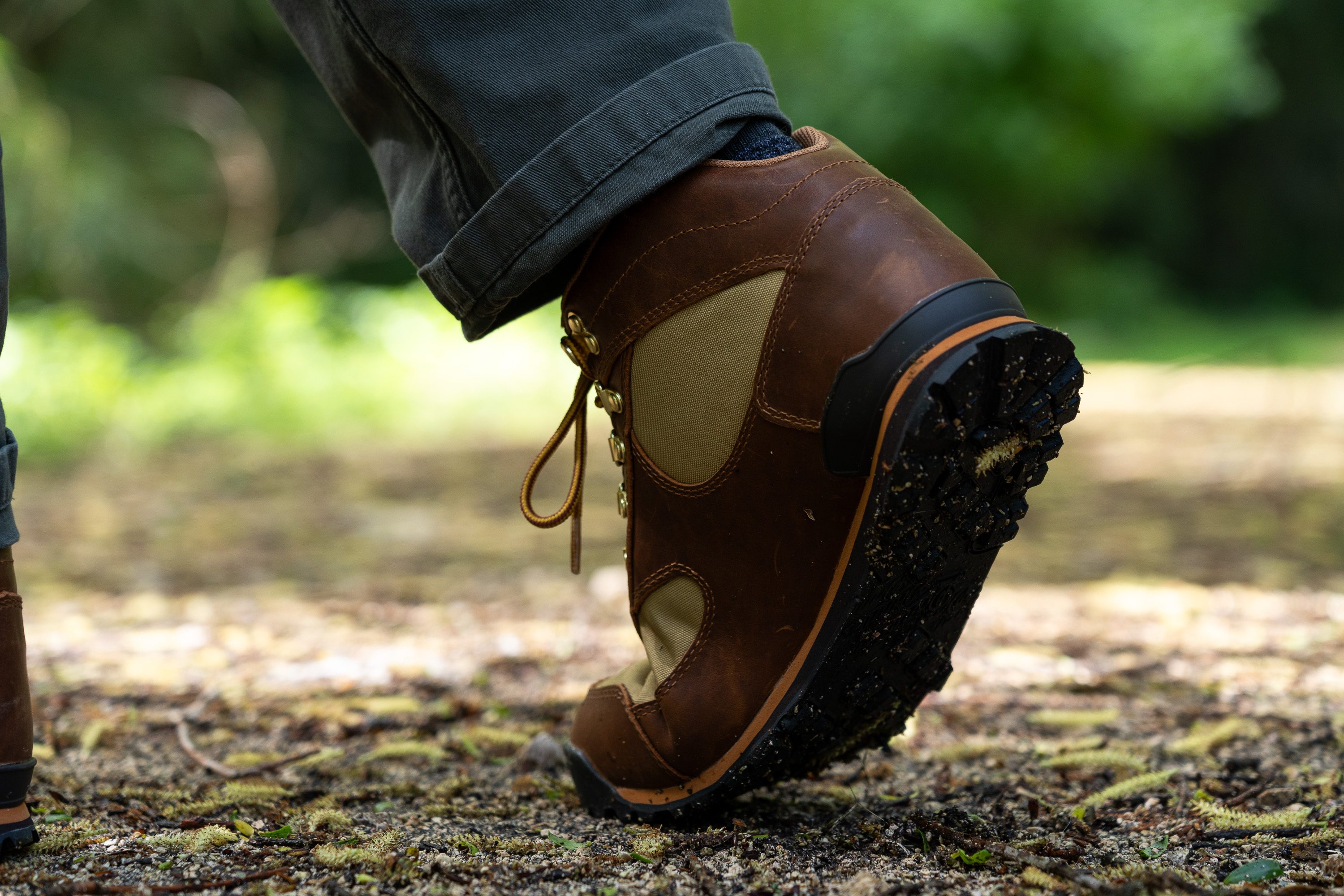
| Jag | None |

